#Lozärner Fasnacht
Explore tagged Tumblr posts
Text
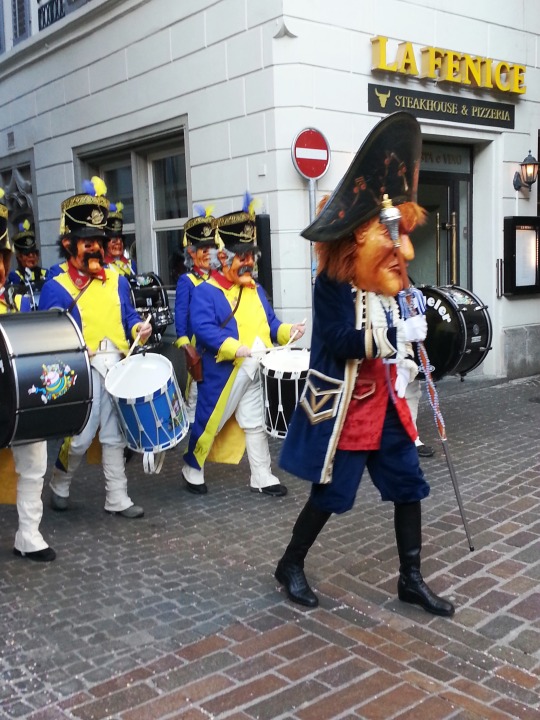
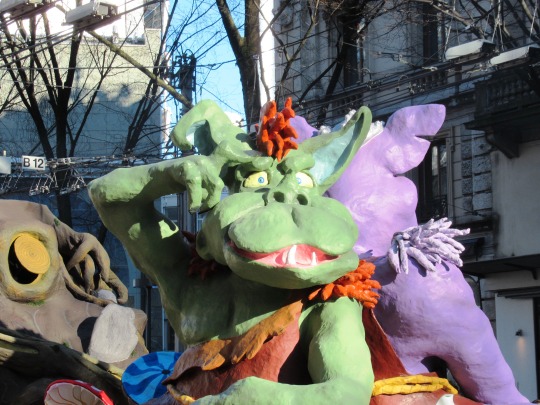
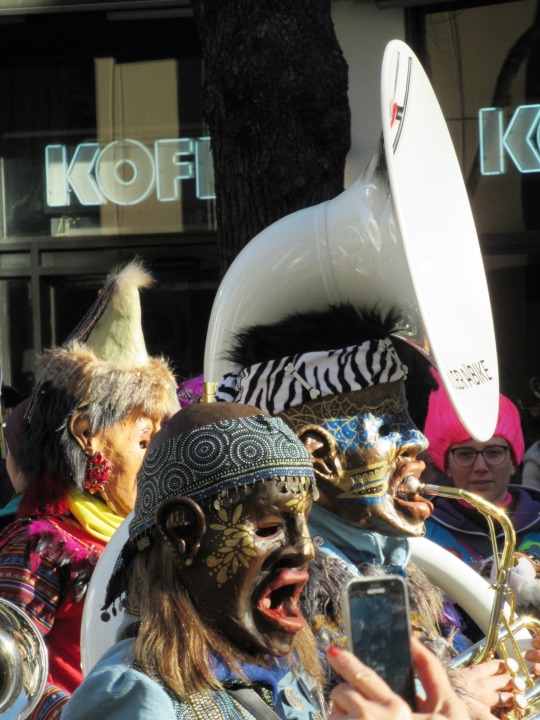

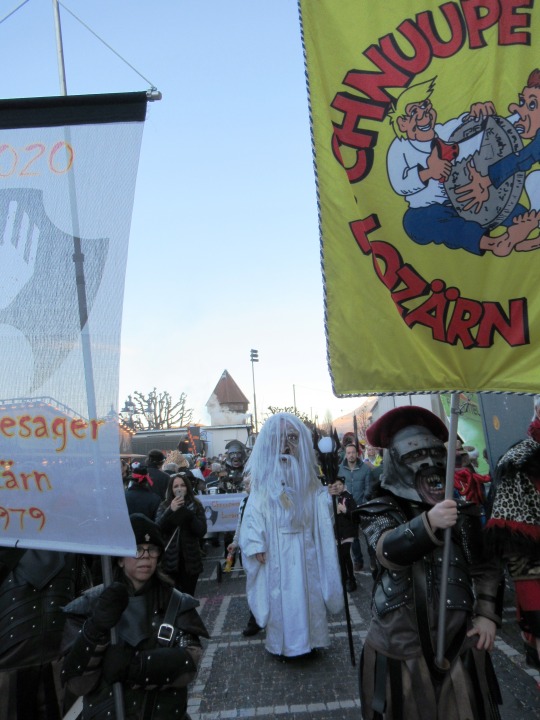

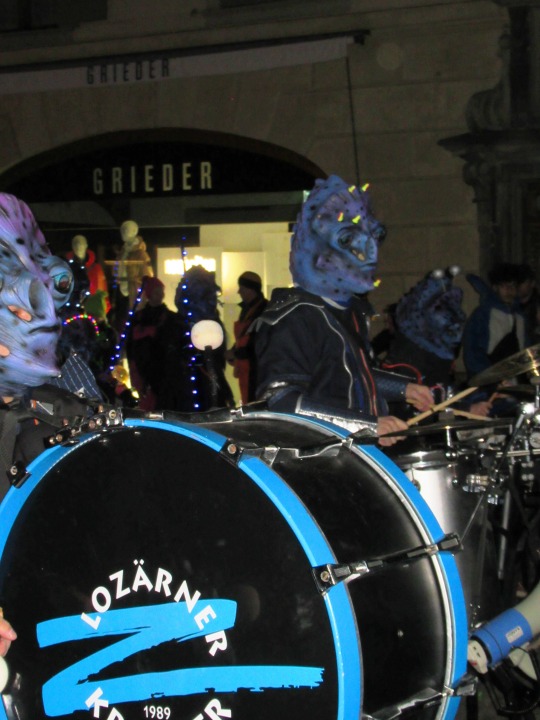






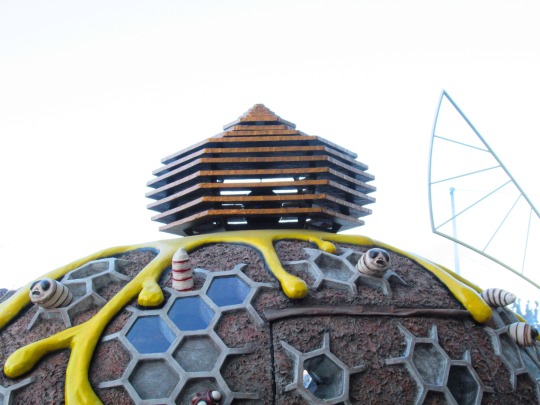
Shrove Monday/Güdismontag
This year, Shrove Monday will be observed on February 20. The day, also known as “Collop Monday”, “Rose Monday”, “Merry Monday”, or “Hall Monday,” is an annual Christian holiday that is observed on the Monday before Ash Wednesday. The day is celebrated with carnival parades and floats that often satirize a culture’s habits or people, national and international public figures, recent events, and taboo subjects. Marching bands and local associations are also a part of these parades. The parades are visited by spectators and some may even receive media coverage. Spectators at the parade also dress as mythical or political figures, thus adding to the merriment of the day.
History of Shrove Monday
The origins of Shrove Monday are not entirely clear. However, the traditions around the carnival and parades may have begun over two thousand years ago by the Romans. In these carnivals, it wasn’t uncommon to see the servants and slaves playing the role of masters and dressing up like them. Fast forward to today, the tradition continues with people dressing up as local and international public figures while satirizing them.
Shrove Monday also signals the end of the period before ‘Lent’ for many Christians. Until Easter, Christians observe a period called Lent. Some might even choose to fast or spend more time praying during the Shrovetide week. Several Christians give up meat, sugar, eggs, and alcohol during this period. The fast or abstinence is broken by consuming these food products during the carnivals.
The day is sometimes called “Collopy Monday” in the U.K. owing to a traditional meal eaten for breakfast on the day — collops of bacon eaten with an egg. Whereas in east Cornwall, Shrove Monday is known as “Paisen Monday” or “Peasen Monday”, in honor of the pea soup that is eaten on this day. Shrove Monday is a popular holiday in numerous countries. It is part of the Carnival calendar in Greece, and in many Caribbean countries, it is known as “Carnival Monday” — thus starting the Carnival season. In the Americas, Shrove Monday is more popular as “Luni Gras” or “Fat Monday”. In Lucerne it's called "Güdismontag". Güdis is an old word for stomach and Montag is Monday. It's the last Monday to fill your stomach with all the good eats before the Lent starts on Wednesday.
It appears that almost every culture has its version of Shrove Monday!
Shrove Monday timeline
12th Century The Royal Shrovetide Football Match
Henry II starts the trend of an annual traditional football match that is different from modern-day football.
19th Century The Celebrations in the Caribbean
Trinidad and Tobago Carnivals first celebrate Shrove Monday in the Caribbean.
19th Century The Mississippi Gulf Coast Mardi Gras
Carnival celebrations to mark Shrove Monday begins in Mississippi, U.S.
20th Century The New Name
Mississippi Gulf Coast Mardi Gras is renamed Lundi Gras or Fat Monday.
Shrove Monday FAQs
What does Shrove Monday celebrate?
Shrove Monday is celebrated before Ash Wednesday and signals people to start preparing for the season of Lent.
Is Shrove Monday a holiday in Germany?
Shrove Monday is not a public holiday in Germany.
Where is Shrove Monday celebrated?
Shrove Monday is celebrated in Europe, the Americas, and even the Caribbeans.
How to Observe Shrove Monday
Feast on collop and eggs
Attend a carnival
Start preparing for Lent
Start Shrove Monday by feasting on the traditional meal of collop and eggs. A collop of bacon may be eaten with beans and vegetables to add more flavor to the dish. This is the best way to start the celebrations!
Find out if there are any carnivals on Shrove Monday located close to your area. You may even dress up in costumes or participate in the festivities as a spectator. Shrove Monday carnivals are a stunning sight.
After you are done celebrating Shrove Monday, you could start preparing for Lent. Devout Christians prepare for Lent by confessing, fasting, giving up certain food items, and praying more.
5 Intriguing Facts About Shrove Monday
It’s always on a Monday
The name comes from the word ‘shriving’
Carnivals and Shrove Mondays are synonymous
‘Collop’ doesn’t always mean bacon
It also marks the start of spring
More precisely, Shrove Monday is always celebrated 48 days before Easter.
The old word ‘Shriving’ means to listen to someone’s sins and forgive them.
Some of the world’s largest and most famous carnival celebrations take place in New Orleans, Rio de Janeiro, and Venice.
Any fatty piece of meat may be referred to as ‘collop’ and consumed on Shrove Monday.
Shrove Monday marks the beginning of Spring in the Greek Orthodox calendar.
Why Shrove Monday is Important
Celebration of age-old traditions
A time of merry-making
A celebration of rare foods
Shrove Monday is celebrated with The Royal Shrovetide Football Match dating back to the 12th Century. Ancient traditions like these make Shrove Monday an important historical observation while keeping old traditions alive.
Shrove Monday is celebrated with carnivals, parades, and floats. People dress up, indulge in satire, and drink and eat to celebrate. Shrove Monday is a perfect holiday to spend some fun times with your loved ones.
Shrove Monday, in a way, also celebrates foods that are increasingly becoming rare. Also known as Collop Monday and Peasen Monday, this is a good opportunity to celebrate collop bacon and eggs, and pea soup.
Source
#Müsäli Musig#Güdismontag#Guuggemusig#Lozärner Fasnacht#Switzerland#Lucerne Carnival#Lucerne#Schweiz#Tagwache#original photography#the best carnival in the world#Schnipp Schnaps#Wasserturm#old town#architecture#cityscape#12 February 2024#Näbelhüüler#Doop#grend#Lozärner Kracher#River Reuss#Unter der Egg#Shrove Monday#Carnival Monday#Gluggsi Musig#Bohème Musig#tourist attraction#landmark#Noggeler
4 notes
·
View notes
Link
#fritschi umzug#luzerner fasnacht#lozärner fasnacht#carnival#Fasnacht#travel#photography#event photography#guggenmusik#fasnächtler
0 notes
Text
















World Music Day
From Beethoven to Taylor Swift, there’s music for everyone. Revisit your old favorites or discover new artists from different cultures on World Music Day.
There’s nothing in the world like the sound of your favorite song coming on, it just gets right into your head and your body and makes you move. Or maybe it takes you on a journey to a faraway place and time, where you languish in a memory of times gone by and people who are no longer present. Some of our favorite songs can lift us up out of depression and worry, and make an otherwise horrible day suddenly seem like it’s not so bad. World Music Day celebrates music in all its forms and the impact it’s had on the world and the human spirit.
World Music Day is for everybody to enjoy
Have you ever put on your headphones, hit play on an upbeat tune and waltzed down the street as if you were in a movie? You’re not alone, everybody has done it (they’re just too afraid to admit it!). Music has the ability to lift your spirits even when you don’t feel like getting out of bed that day. Why shouldn’t there be an entire day to celebrate the wonders of music? World Music Day needs to be celebrated far and wide without a doubt! Next time you’re in a bit of a funk, crank up your favorite song (close your curtains) and dance like nobody’s watching. It’s a soul soothing activity that should always be your go to saviour!
World Music Day is free and full of fun!
The best thing about World Music Day is that it is completely free to celebrate. No matter what kind of music you love you can take part for free and you can get the whole family involved. It is the perfect opportunity to try playing a brand-new instrument or listen to a type of music that you wouldn’t normally have on your playlist.
Every type of musician, whether you are young, old, new or a seasoned professional can embrace world music day with friends, family and even strangers!
Last year more than one thousand cities all over the world celebrated World Music Day, so why don’t you take this opportunity to do it to? Anybody can make music; it doesn’t matter how good you are. If you are the type of person who sings in the shower, why not use this opportunity to showcase your talents? Even the most tone deaf people can take this day to sing their hearts out and celebrate the beauty and power of music!
World Music Day originally launched several decades ago in France. In 1982 the Ministry of Culture in France developed a clever idea to celebrate the wonders of music. They wanted free, live music to be available to everybody no matter what their heritage or background. Usually you have to pay for tickets to music festivals, but not with World Music Day!
The many benefits of listening to music
Music is not only a fantastic creative outlet, but it can also have many health benefits. When you listen to a particular song it can bring back a happy memory or make you feel energized. Studies suggest that listening to music can have a number of positive effects on your health and mental wellbeing. As well as enhancing your performance of exercise, it can also provide a huge amount of comfort. Exercise has also been proven to reduce anxiety and listening to relaxing music can also decrease stress levels. So if you are looking for a mood boosting activity, why not celebrate World Music Day and let all of your troubles rush away from your mind instantly?
History of World Music Day
Music has existed for as long as mankind has found its voice, and quite possibly before. Every culture of the world has its own form of music, as distinct and unique to its area as language and cuisine. In the western world, we are familiar only with scales, known as the diatonic scale which should be familiar to anyone who took music classes or choir in school. But this is not the only or even the first scale that music can use.
There’s the chromatic scale, which has 12 notes instead of the 7, and the octatonic scale, which has 8 notes, but these are just the beginning. In every part of the world, there are different scales and musical formats used, and these create a form of music that has its own signature. Then when you add in the cultural themes, the variety of instruments, and the forms of voice singing that can go along with it, music is a truly endless adventure. World Music Day celebrates this adventure and those that dare to take it.
How to celebrate World Music Day
The best way to celebrate World Music Day is to spend the day listening to all your old favorites, and if you’re truly feeling adventurous start exploring YouTube for music from different cultures. You can explore Finnish and Hungarian, Italian and Mongolian, and then start digging into folk music. With sources like these, it’s easier than ever to explore the panorama of musical experiences the world has to offer, and you can do it all from the comfort of your own home. Of course, you could always pick up an instrument and start adding your own voice to the choir!
Source
#Howard Shore#James Brown by John Savage#The Source of Country Music by Thomas Hart Benton#Brad Paisley#Country Music Hall of Fame and Museum#Guuggenmusig#Lozärner Fasnacht#Largest Ceilidh Fiddle in the World#Toronto#B. B. King by Ed Dwight#Memphis#New Orleans#Glenn Gould Gathering by Ruth Abernethy#W.C. Handy by Leone Tommasi#World Music Day#WorldDayofMusic#21 June#USA#Canada#Switzerland#travel#original photography#vacation#tourist attraction#architecture#cityscape
3 notes
·
View notes
Text







National Wig Out Day
People are encouraged to wear whatever type of hair they'd like today. Different styles and different colors—it's all possible by picking out the right wig. National Wig Out Day was created in 2006 by sisters Kate and Alice Clark, who convinced residents in their city of Bellingham, Washington, to wear wigs to their jobs on the day of the inaugural celebration. At the end of the day, wig-wearing celebrants gathered downtown for a party. The day caught on and National Wig Out Day spread across the country.
Wigs are made of human hair, animal hair, or synthetic fiber. Some people wear them on a regular basis because of their convenience, since they can be styled ahead of time. They are also worn by those who have hair loss, including those who have lost hair on account of medical issues, such as cancer patients who are going through chemotherapy. Celebrities have been known to wear wigs and popularize them. Wigs are worn at costume or fancy dress parties and are common during Halloween. Some judges, barristers, and other civic or municipal officials in some parts of the world wear wigs. Actors in theater, film, and television also regularly wear wigs.
Wigs date back to ancient Egypt, where they were worn by people who had cut their hair short. Kept in place with beeswax and resin, the wigs protected their wearers from the sun. Egyptians weren't the only ancient peoples to wear wigs; so did Phoenicians, Assyrians, Romans, Greeks, and Jews in ancient Israel. Sometime later they were worn in China, Japan, and Korea.
After the fall of the Western Roman Empire in the fourth and fifth centuries, wigs weren't used in the West until the sixteenth century. At that time, they were used much as they are today: to improve appearance or cover up hair loss. They also helped to prevent head lice. English royals began wearing wigs in the early seventeenth century. Later in the century, perukes or periwigs—wigs that were at least shoulder-length—came in vogue. These tended to be expensive and elaborate and were worn by those of higher social rank.
In the eighteenth century, men's wigs were powdered so they looked white or off-white, and were worn for important social occasions. Women tended to not wear wigs. Wigs became smaller, and some became associated with certain professions, being worn by judges and bishops. By the end of the century, wigs were largely only common with older, conservative men, and with ladies presented at court.
Early in the nineteenth century, following the emergence of the United States and a new France, the wearing of wigs as a symbol or social status was largely jettisoned. In general, wigs were not prominent or fashionable in the nineteenth and early twentieth centuries. The development of affordable, synthetic wigs made of modacrylic fiber in the 1960s paved the way for a resurgence of wigs, and ultimately, for a holiday like National Wig Out Day to come about.
How to Observe National Wig Out Day
Celebrate by wearing a wig! Any style or color will do! If you have to go to work today, make sure to wear it there. Afterward, gather with your friends and have a party. Perhaps you could party downtown, just like the organizers of the first National Wig Out Day did.
Source
#National Wig Out Day#NationalWigOutDay#24 May 2024#Switzerland#Schweiz#10 days before the first Monday in June#original photography#blue wig#costume#Lozärner Fasnacht#Lucerne Carnival#Luzern#Lucerne#tourist attraction#makeup#indoors#landmark#cityscape#architecture#the best carnival in the world
2 notes
·
View notes
Text
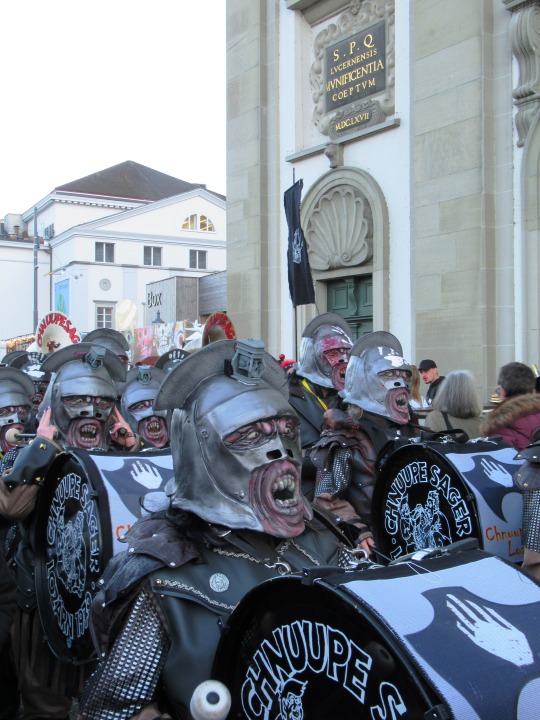
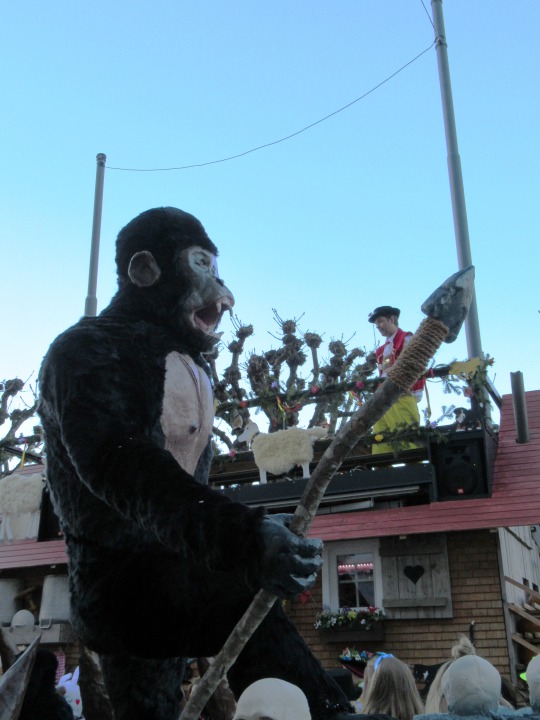
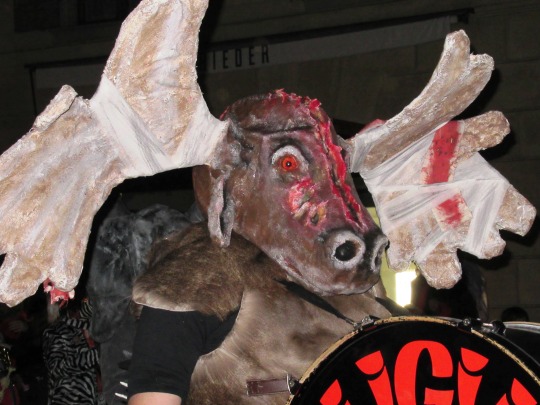



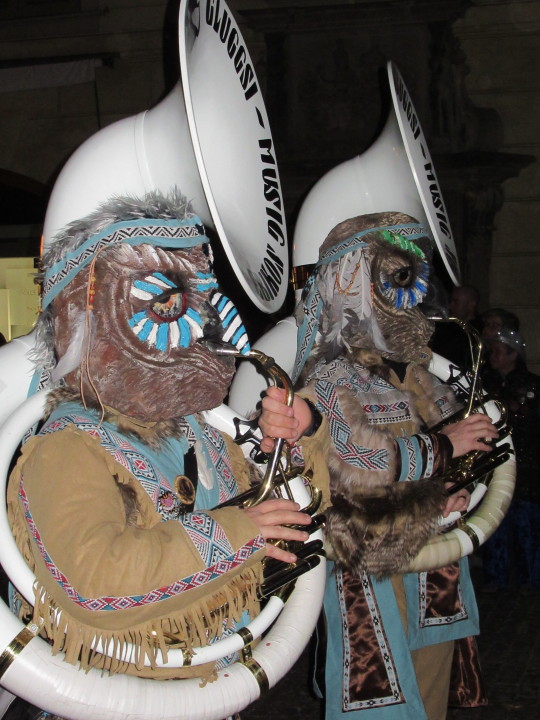

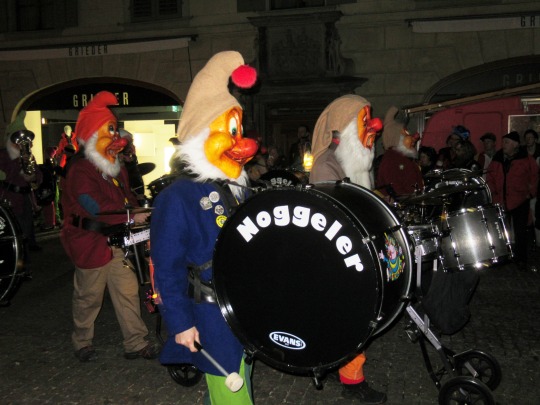
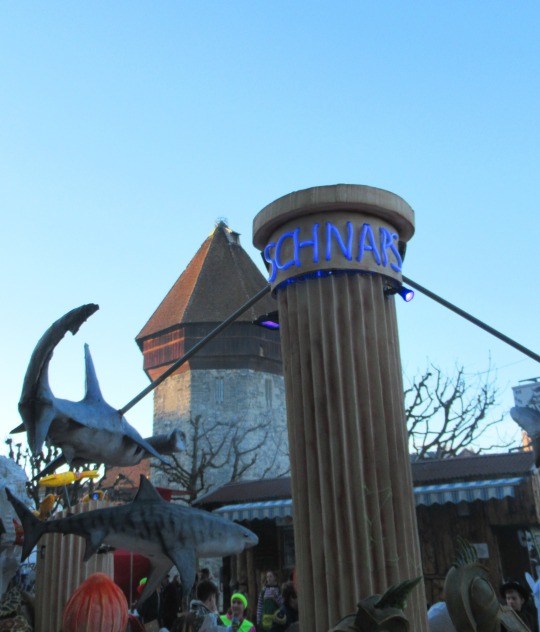
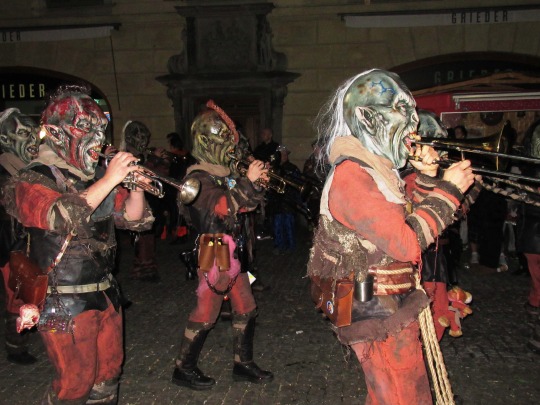

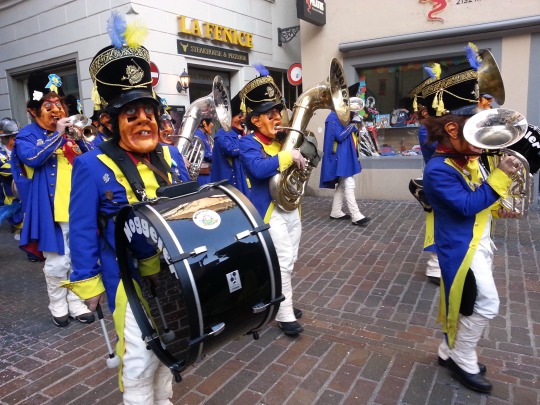
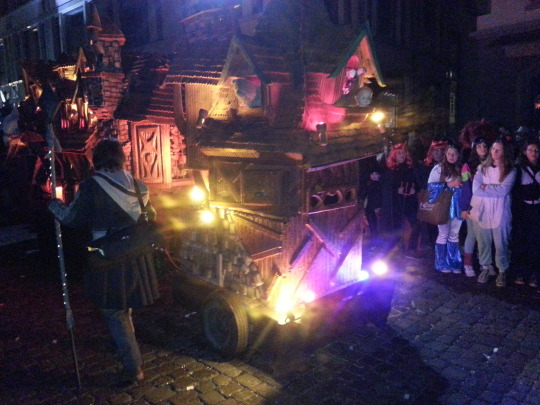
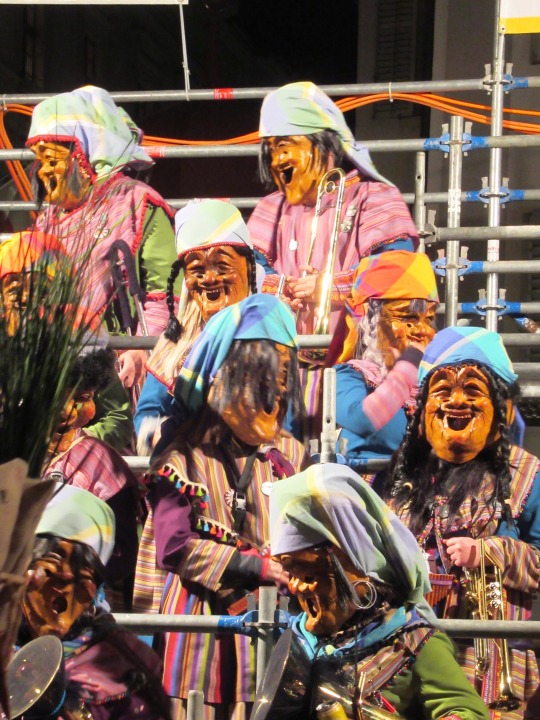


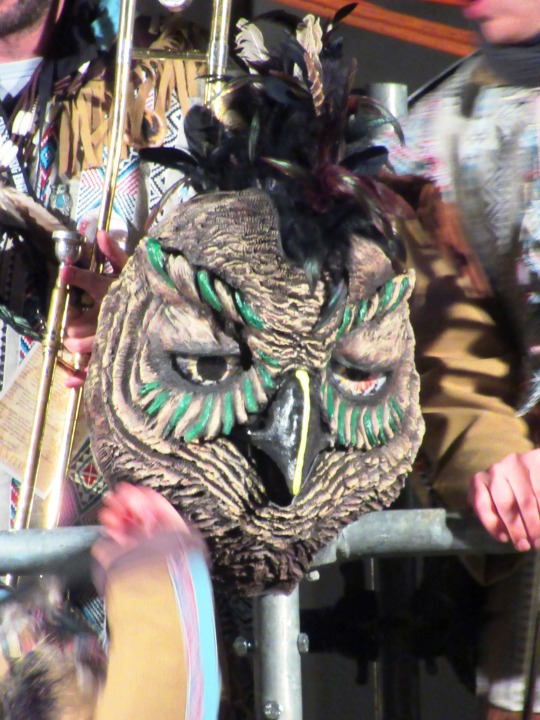
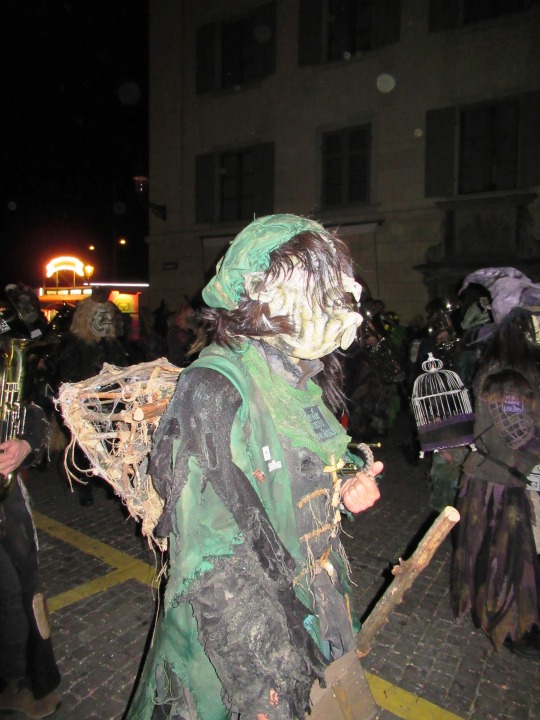
Mardi Gras/Fat Tuesday/Güdisdienstag
Fat Tuesday or ‘Mardi Gras’ is on the Tuesday before Ash Wednesday and at the start of Lent. We’re making sure that you have the time of your life during this week-long period of festivities. The origins of Mardi Gras link back to pagan celebrations of the arrival of spring and fertility, such as the Roman festivals of Saturnalia that celebrated the same and that of Lupercalia which was also characterized by banqueting and merrymaking. This day is celebrated with parades and feasts before the start of the fasting season of Lent.
History of Fat Tuesday
‘Mardi Gras’ is French for Fat Tuesday. It’s also called Shrove Tuesday or Pancake Tuesday in different parts of the world. Mardi Gras is synonymous with carnival celebrations in New Orleans, Venice, and Rio, although the day is also celebrated in a similar fashion in countries with large Roman Catholic populations.
Festivities similar to Mardi Gras date back to ancient Roman times where people celebrated the harvest season. When Christianity arrived in Rome, these popular local traditions were incorporated into the new faith. The debauchery typical of Mardi Gras precedes Lent, the 40-day period of fasting and penance leading to Easter Sunday.
As Christianity and Mardi Gras spread from Rome to other European countries, new traditions were born and some old ones took on new forms. What began as a holiday rooted in religious tradition became a cultural phenomenon, leading to binging and parties that weren’t always followed by the 40-days of penance.
Mardi Gras celebrations began in America when French explorers Pierre Le Moyne d’Iberville and Jean-Baptiste Le Moyne de Bienville landed near present-day New Orleans, Louisiana. A few years later, New Orleans and other French settlements observed the holiday with street parties, masked balls, and lavish dinners organized by social clubs called ‘Krewes.’
Today, Mardi Gras is celebrated all over the world integrating local styles and native traditions. From Rio’s weeklong Carnival festivities to Quebec’s Winter Carnival and Germany’s Karneval that includes parades, costume balls, and a tradition where women cut off men’s ties to symbolize women’s power.
Besides the procession of floats, colorful beads also feature in celebrations in the U.S. and a king cake with a trinket or baby figurine, to represent the Christ Child, baked inside it.
Fat Tuesday timeline
1699 The First American Mardi Gras
On March 3, French explorers Pierre Le Moyne d’Iberville and Jean-Baptiste Le Moyne de Bienville hold a small celebration and name their landing spot Point du Mardi Gras.
Early 1800s A Ban on Mardi Gras
The Spanish take control of New Orleans and abolish the rowdy rituals.
1837 The First Mardi Gras Parade
The first recorded Mardi Gras parade is held in New Orleans.
The 1920s Origins of Parade Throws
The tradition of ‘parade throws,��� where the float riders throw beads to the crowds, originates with the Rex Krewe, the city's oldest social club.
Fat Tuesday FAQs
What is the difference between Fat Tuesday and Fat Thursday?
Fat Tuesday is the day before the start of Lent, Ash Wednesday. In Poland, ‘Paczki’ Day, instead, is celebrated on Fat Thursday, otherwise known as ‘Tlusty Czwartek.’
What is special about Fat Tuesday
Fat Tuesday’s period of festivals and feasts lead up to a period of reflection and fasting.
What does ‘Shrove’ mean?
Shrove, derived from ‘shrive’, refers to the confession of sins as a preparation for Lent. As the final day before the austerity of the Lenten fast, Shrove Tuesday also has many customs related to food.
How to Celebrate Fat Tuesday
Join in on the festivities
Prepare your own Fat Tuesday feast
Travel to Lucerne, Switzerland
Take a little trip to New Orleans or plan a vacation to other countries that celebrate Mardi Gras to experience the different activities they do during carnival week. You can even participate in the local celebrations taking place in your town.
Bring the festivities home and celebrate with your friends and family. Organize a Fat Tuesday at home and prepare a holiday feast. You can even have your version of king cake to top off the festivities.
Travel to Lucerne and celebrate the last day of carnival like nowhere else in the world! Enjoy the Monstercorso in the evening and dance the night away in the streets of the old town.
5 Zesty Facts About Fat Tuesday
Mardi Gras colors have specific meaning
“Throw Me Something, Mister”
It’s illegal not to wear masks on a float
Key to the city
Colorful ladders with seats
Purple represents justice, gold symbolizes power, and green represents faith.
These are the ‘magic’ words used to get the float riders to aim the throws for you to catch.
Float riders have to wear a (carnival) mask by law for the duration of their trip.
According to tradition, the Mayor of New Orleans hands over the key to the city to Rex, the king of Carnival, on Mardi Gras Day.
Ladders line St. Charles Avenue on days during Mardi Gras for children to climb up and enjoy the view of the parade.
Why We Love Fat Tuesday
It is celebrated across the world
Mardi Gras is fun
It is tradition
Pre-Lenten festivals take place all around the world in many countries with significant Roman Catholic populations. Celebrations include masquerade balls, carnival festivities, parades, dress-ups, and costume balls.
Mardi Gras is a day of revelry that includes parades, parties, balls, and carnivals before the 40-day period of fasting and reflection. It is the last day of the Carnival season, which has evolved into a week-long period of festivities around the globe.
Mardi Gras is a reflection of ancient traditions and diverse cultures that have their origins in the pagan celebrations of spring and fertility. As time passed, the practices surrounding the day have changed. The heritage of Lent, Carnival, and Fat Tuesday, have been incorporated into regional customs.
Source
#Leuechotzeler#Kapellbrücke#Chapel Bridge#Chnuupe Sager#Guuggemusig#Lozärner Fasnacht#Lucerne#Lucerne Carnival#original photography#grend#the best carnival in the world#architecture#cityscape#13 February 2024#tourist attraction#landmark#old town#Doop#Noggeler#Chacheler Musig#Güdisdienstag#Fat Tuesday#Mardi Gras
2 notes
·
View notes
Text
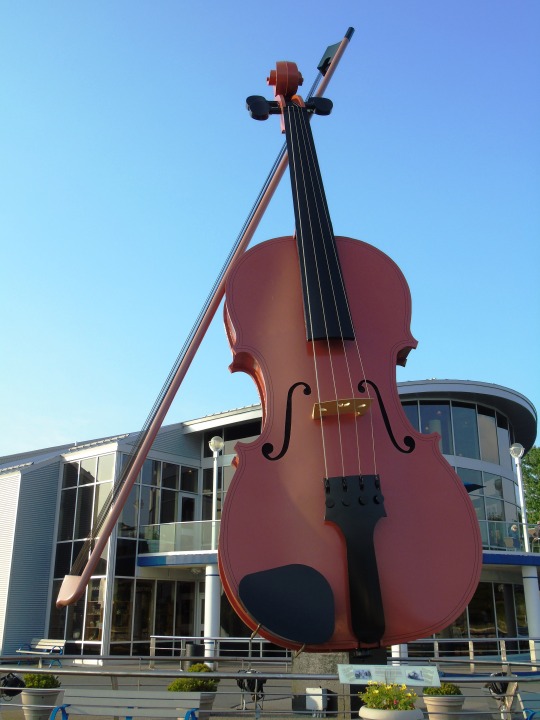


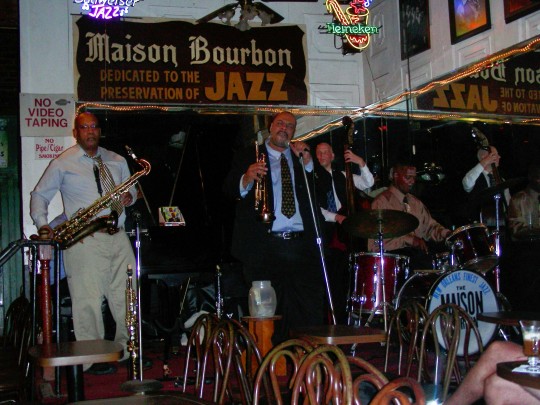
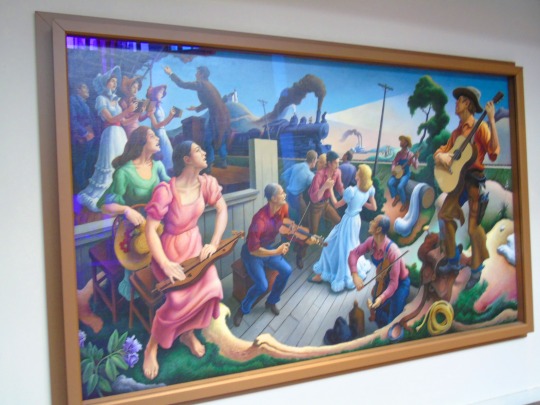
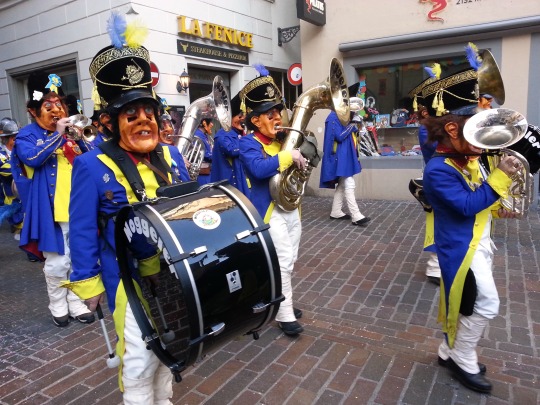

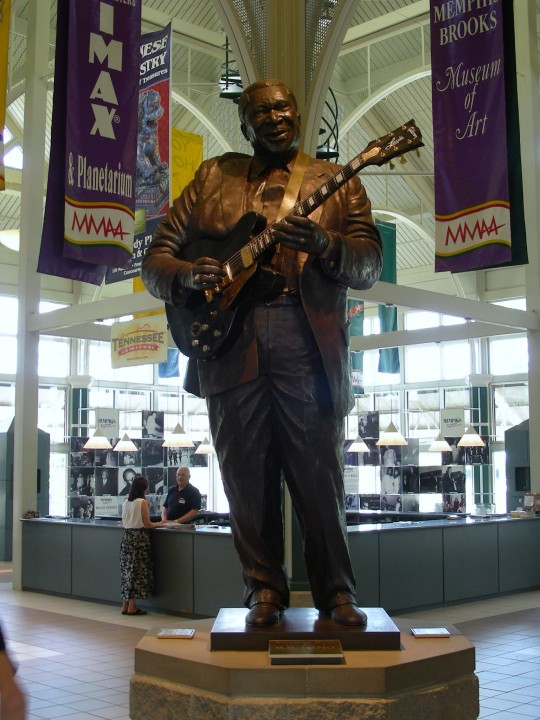

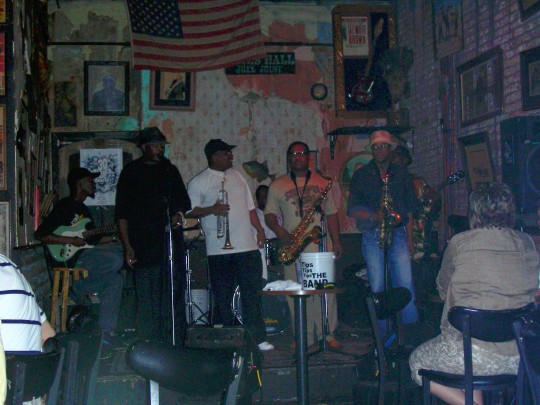



World Music Day
From Beethoven to Taylor Swift, there’s music for everyone. Revisit your old favorites or discover new artists from different cultures on World Music Day.
There’s nothing in the world like the sound of your favorite song coming on, it just gets right into your head and your body and makes you move. Or maybe it takes you on a journey to a faraway place and time, where you languish in a memory of times gone by and people who are no longer present. Some of our favorite songs can lift us up out of depression and worry, and make an otherwise horrible day suddenly seem like it’s not so bad. World Music Day celebrates music in all its forms and the impact it’s had on the world and the human spirit.
World Music Day is for everybody to enjoy
Have you ever put on your headphones, hit play on an upbeat tune and waltzed down the street as if you were in a movie? You’re not alone, everybody has done it (they’re just too afraid to admit it!). Music has the ability to lift your spirits even when you don’t feel like getting out of bed that day. Why shouldn’t there be an entire day to celebrate the wonders of music? World Music Day needs to be celebrated far and wide without a doubt! Next time you’re in a bit of a funk, crank up your favorite song (close your curtains) and dance like nobody’s watching. It’s a soul soothing activity that should always be your go to saviour!
World Music Day is free and full of fun!
The best thing about World Music Day is that it is completely free to celebrate. No matter what kind of music you love you can take part for free and you can get the whole family involved. It is the perfect opportunity to try playing a brand-new instrument or listen to a type of music that you wouldn’t normally have on your playlist.
Every type of musician, whether you are young, old, new or a seasoned professional can embrace world music day with friends, family and even strangers!
Last year more than one thousand cities all over the world celebrated World Music Day, so why don’t you take this opportunity to do it to? Anybody can make music; it doesn’t matter how good you are. If you are the type of person who sings in the shower, why not use this opportunity to showcase your talents? Even the most tone deaf people can take this day to sing their hearts out and celebrate the beauty and power of music!
World Music Day originally launched several decades ago in France. In 1982 the Ministry of Culture in France developed a clever idea to celebrate the wonders of music. They wanted free, live music to be available to everybody no matter what their heritage or background. Usually you have to pay for tickets to music festivals, but not with World Music Day!
The many benefits of listening to music
Music is not only a fantastic creative outlet, but it can also have many health benefits. When you listen to a particular song it can bring back a happy memory or make you feel energized. Studies suggest that listening to music can have a number of positive effects on your health and mental wellbeing. As well as enhancing your performance of exercise, it can also provide a huge amount of comfort. Exercise has also been proven to reduce anxiety and listening to relaxing music can also decrease stress levels. So if you are looking for a mood boosting activity, why not celebrate World Music Day and let all of your troubles rush away from your mind instantly?
History of World Music Day
Music has existed for as long as mankind has found its voice, and quite possibly before. Every culture of the world has its own form of music, as distinct and unique to its area as language and cuisine. In the western world, we are familiar only with scales, known as the diatonic scale which should be familiar to anyone who took music classes or choir in school. But this is not the only or even the first scale that music can use.
There’s the chromatic scale, which has 12 notes instead of the 7, and the octatonic scale, which has 8 notes, but these are just the beginning. In every part of the world, there are different scales and musical formats used, and these create a form of music that has its own signature. Then when you add in the cultural themes, the variety of instruments, and the forms of voice singing that can go along with it, music is a truly endless adventure. World Music Day celebrates this adventure and those that dare to take it.
How to celebrate World Music Day
The best way to celebrate World Music Day is to spend the day listening to all your old favorites, and if you’re truly feeling adventurous start exploring YouTube for music from different cultures. You can explore Finnish and Hungarian, Italian and Mongolian, and then start digging into folk music. With sources like these, it’s easier than ever to explore the panorama of musical experiences the world has to offer, and you can do it all from the comfort of your own home. Of course, you could always pick up an instrument and start adding your own voice to the choir!
Source
#James Brown by John Savage#The Source of Country Music by Thomas Hart Benton#Brad Paisley#Country Music Hall of Fame and Museum#Guuggenmusig#Lozärner Fasnacht#Largest Ceilidh Fiddle in the World#Toronto#B. B. King by Ed Dwight#Memphis#New Orleans#Glenn Gould Gathering by Ruth Abernethy#W.C. Handy by Leone Tommasi#World Music Day#WorldDayofMusic#21 June#USA#Canada#Switzerland#travel#original photography#vacation#tourist attraction#architecture#cityscape
4 notes
·
View notes
Text













International Music Day
By this one common thread that has the power to bring all humans, societies and cultures together, International Music Day seeks to gather, connect and promote musicians around the world.
Music is the light of life for many people. It inspires, encourages and brings people together. Studies even show that music is good for the health and the brain, providing positive physical, mental and emotional responses when people simply listen to music as well as when they play or sing it.
History of International Music Day
Music occurs within nature and humans have been recreating it probably since the beginning of time, as singing or humming seems to be a natural part of human development. Babies can even begin to sing as early as three months old!
While music has its unique attributes based on the culture and area of the world it comes from, it is a human activity that is exclusive to the human race and part of every culture in the world. Music unites human beings!
With that in mind, in 1949, the International Music Council was created as an associate organization of the United Nations Educational, Scientific and Cultural Organization (UNESCO). Its purpose was to express solidarity between human beings in the global music ecosystem. Connecting, encouraging and providing access for musicians around the world, this organization started International Music Day
Initiated in 1973 by the 15th General Assembly of the International Music Council, the first International Music Day was celebrated in 1975. The intention behind the day was to promote musical art among all sectors of society as well as applying the UNESCO ideas of peace and friendship among people.
Many methods of teaching music have been embraced all over the world, some of these specific to certain cultures. In Europe, the Americas, Asia, Africa and other places, children are often taught different versions of music in schools including singing and the playing of instruments such as recorders or percussion like drums and bells.
Whether a professional musician or novice, whether an opera singer or someone who really can’t carry a tune, International Music Day encourages people all over the globe to join in with five goals:
To allow children and adults to express themselves freely through music.
To give opportunities for children and adults to learn musical skills and languages.
To provide access to musical involvement for all.
To allow musical artists to develop and communicate through media and using proper facilities.
For musical artists to obtain recognition and fair remuneration for their work.
International Music Day Timeline
Paleolithic Period Musical instruments are used
Some of the oldest musical instruments, beginning with flutes, are believed to be from this period of time, millions of years ago.
1400 BC Music is first written down
The earliest form of musical notation is dated from this time, written in a cuneiform tablet.
1949 International Music Council (IMC) is formed
The world’s largest network of institutions and organizations working in the field of music is created.
1973 IMC General Assembly in Lausanne
At the 15th General Assembly of the International Music Council, a resolution is made to establish an International Music Day.
1975 International Music Day is founded
Started by the International Music Council, this day is initiated by Lord Yehudi Menuhin to encourage and promote music in society.
How to Celebrate International Music Day
International Music Day offers tons of opportunities to enjoy and celebrate everything to do with music and all of the amazing benefits it has to offer. Consider some of these ideas for getting involved:
Listen to Music
Whether it is classical music that promotes brain development or modern music that makes your body want to move and dance, International Music Day can be celebrated by putting on some tunes. Turn up the volume in the car or pop in those headphones at work and join in on all the fun and benefits that music has to offer.
Create some playlists on an online music platform, turn on the car radio, toss some vinyl on that vintage record player or grab some of those old CDs and get playing. Many different opportunities exist to enjoy listening to music in celebration of the day!
Learn About the Benefits of Music
Many people don’t realize that music is not only fun, it’s actually good for you. International Music Day is the perfect time to learn a little bit more about the benefits of music and how it improves the lives of billions of children and adults all over the world.
Music is good for the heart
Music can help with weight management
Music improves the mood
Music helps to ease pain
Studies have shown that the blood flows better when music is played. Playing music can lower the blood pressure, reduces the heart rate, decreases cortisol and promotes healthy substances in the blood.
Many people don’t know that playing soft music in the background while eating (and dimming the lights) can encourage people to slow down while they are eating which, ultimately, can lead to eating less food and promoting healthier eating habits.
Listening to happy music has been shown to make people (and also pets!) happy. Music can promote the release of good hormones into the bloodstream, such as serotonin and endorphins, which helps people to relax, relieve feelings of anxiety and depression, and promote positive emotions.
Research has proven that music can be used in healthcare situations, especially with geriatric people, to reduce the severity and intensity of pain, particularly in palliative care or intensive care patients.
Attend a Musical Event
This is the time to go out and listen to some live music! Whether related to International Music Day or just part of the cycle of music that happens all year round, attending a concert or other musical event in celebration of the day would be loads of fun!
Grab a seat at the local high school’s musical production. Pop into the local bar and listen to an open mic night. Attend an orchestra concert at the local chamber hall. Or get tickets to that rock star you’ve been dying to see! Music is all around so get ready to join in on it in whatever way possible.
Learn to Make Music
Been thinking about learning how to play the guitar or wondering if now is the time to take piano lessons again? International Music Day might be just the right motivation to get started! Join the rest of the world in learning to make music or improving those music skills by finding a teacher, taking a class or joining a local music collective. Even for those who are not prolific, learning and growing in making music brings joy and delight all over the world.
International Music Day FAQs
Is music good for you?
Yes! Research shows that music can provide health benefits like reducing blood pressure, minimizing anxiety and improving mental capacity.
Does music affect your mood?
Studies have shown that listening to upbeat music can make people feel happier and improve their mood.
Can music help you focus?
Certain types of music can increase brain power through motivation, increased focus and better memorization.
Did music come before language?
Some researchers believe that music came before language, using the study of infants as a basis.
Should music be taught in schools?
Many people agree that the benefits of teaching music in schools are myriad, including assisting in social skills, improving academic performance, and providing a creative outlet for development.
Source
#James Brown by John Savage#Guuggenmusig#Noggeler#B. B. King by Ed Dwight#Elvis Presley#Graceland#Country Music Hall of Fame and Museum#travel#USA#Brad Paisley#W.C. Handy by Leone Tommasi#Memphis#Nashville#Augusta#John Brown#Lozärner Fasnacht#Lucerne Carnival#Glenn Gould Gathering by Ruth Abernethy#bagpipe#Canada#Howard Shore#Lord of the RIngs#Maison Bourbon#New Orleans#International Music Day#1 October#InternationalMusicDay#Chnuupe Sager#original photography
0 notes
Text








Siblings Day
It would be difficult to contest the fact that the bond between siblings is extra-special! Especially because many of them have spent most of their entire lives together. Many people can’t even remember a time when their siblings weren’t part of their lives. Some of them even shared a womb at the same time, if they were born as multiples!
Sibling bonds are often life-long relationships, usually lasting from cradle to grave. Since siblings are most likely from the same generation, these are often the longest relationships of a person’s life–much longer than a mother’s and father’s relationship.
Siblings Day is a way of honouring the special bond that happens within families, as brothers and sisters share life together from childhood into adulthood and even into old age.
It’s time to celebrate Siblings Day!
How to Celebrate Siblings Day
Depending on the circumstances, celebrating Siblings Day might be a fun, enjoyable event, or it might come with some bittersweet memories. Either way, it’s an important day to recognize and remember, so put these ideas into practice or come up with other creative ways to acknowledge the day:
Take a look at these preposterous sibling-themed items!
Is your sibling a pain? The kind of person who would use their last breath on earth to let you know that your haircut looks stupid?
Well then, we’ve found the perfect gifts for you: products that are both funny and functional.
Spend Time With a Sibling
One of the most important activities on this day is to acknowledge and appreciate a brother or sister (or both!) Siblings Day can be celebrated by making a phone call to a sibling, sending a card or gift, making a dinner invitation, or simply going for a walk in the park.
For those who have siblings who have passed away, this might be a nice time to visit a place that holds happy memories from younger days. It might be necessary to take time to be sad, if needed, and also take time to remember and be thankful.
Reminisce Through Old Photos
Many people have lots of old photos that they haven’t looked at in quite some time. Whether they were taken on film long ago and are now sitting in a shoebox somewhere, or they have been digitized and are easily accessible online, Siblings Day is a fun day to enjoy the nostalgia of those photos.
Share them with others in the family who might also have enjoyable memories. Siblings Day might even be the right time to put together a scrapbook to hold photos, memories and stories of beloved brothers and sisters.
Make Use of The Siblings Day Foundation Resources
As part of their work, the Siblings Day charitable organization provides different types of help related to siblings, whether due to grief and loss or the need for connection. Some of the services offered by the organization include:
Sibling-2-Sibling Support Groups. Offered to those who need help with grief recovery due to the loss of a sibling, this support service engages the help of professionals such as social workers and psychologists.
Lost Sibling Registry. For those who have lost touch with a sibling for some reason or another, this registry helps to match up missing brothers and sisters with each other.
Adopt-a-Sibling Program. Providing resources that helps facilitate the adoption of siblings.
Teach Children to Appreciate Their Siblings
It’s never too early to get a start on teaching children to love and care for their brothers and sisters.
For parents of little ones who want to celebrate Siblings Day, it’s fun to dress siblings in matching outfits and have a photo shoot. Older kids can write letters or stories that include the things they appreciate each other–these can then be put into a memory box to read when the kids grow up!
Kids can also read (or have read to them) books about siblings that encourage them to get along. These might include The Evil Princess vs. the Brave Knight by Jennifer L. Holm; Lola Reads to Leo, by Anna McQuinn; The Unbudgeable Curmudgeon, by Matthew Burges; or anything from the Charlie and Lola series by Lauren Child.
Listen to Music about Brothers and Sisters
Creating and sharing a playlist in honor of the relationship between siblings is a fun way to celebrate National Siblings Day. For those who have local siblings, get together and listen to songs that have special nostalgia within the family. For those who have faraway siblings or siblings who have passed away, listening to songs that are reminiscent of times together can be therapeutic.
Put some of these songs onto a playlist on Spotify or another music hosting site, or come up with your own list of songs:
He Ain’t Heavy He’s My Brother (1969) The Hollies
My Big Sister (2008) Barenaked Ladies
Brother Sister (2010) Beta Radio
When We Grow Up (1973) Diana Ross
Sister to a Brother (2011) Rob Finlay
My Sister Says the Saddest Things (2010) Grimes
Sister Christian (1983) Night Ranger
Watch a Film About Siblings
Whether watching along with a brother/sister or alone, these films feature the relationships between siblings:
Seven Brides for Seven Brothers (1954). A comedy musical film about a group of backwoods brothers who are all looking to get married.
Sabrina (1954). Two brothers compete for the attention of a beautiful woman, Sabrina (Audrey Hepburn).
Hannah and Her Sisters (1986). The stories of three grown siblings whose lives intertwine from one Thanksgiving to another.
The Fabulous Baker Boys (1989). This rom-com features two brothers (played by actual brothers, Beau and Jeff Bridges) who try to eke out a living as lounge pianists.
My Sister’s Keeper (2009). A heart-wrenching story about a girl with cancer and her sister who donates her tissue to keep her alive, with Cameron Diaz and Abigail Breslin.
What’s Eating Gilbert Grape? (1993) A touching story about a young man (Johnny Depp) who tries to keep his family together, including taking care of his younger brother (Leo DiCaprio) who has mental health struggles.
History of Siblings Day
Siblings Day was created by Claudia Evart, a freelance paralegal professional from Manhattan, New York, USA. Evart was inspired to start Siblings Day after she had the tragic experience of losing both her brother and her sister in separate accidents at an early age. The date of Siblings Day is very important to its founder as it marks the birthday of her sister, Lisette.
In an effort to promote the day, Evart began the Siblings Day Foundation as a charitable organization in 1995. Since then, the founder has dedicated herself to convincing American government officials to recognize the day. Her success in this effort has included 49 state governors, many congressmen and congresswomen, as well as US presidents Obama, Bush and Clinton.
Mostly, however, Evart wants the public all over the world to recognize the day and use it to appreciate their own brothers and sisters. The Siblings Day Foundation also offers resources for people who need help with their sibling relationships.
In addition to the United States, Siblings Day is celebrated in many countries, including Australia, Brazil, India, Japan, Nigeria, Sweden, the United Kingdom, and many more.
Sometimes called Brothers and Sisters Day, this is a day of celebration and recognition for siblings around the world, whether they have passed on or are still living.
Source
#my brother and I#me and my brother#our mother#indoors#outdoors#Lozärner Fasnacht#Lucerne Carnival#my sister-in-law#Lucerne#Schweiz#Switzerland#architecture#cityscape#tourist attraction#10 April#original photography#landmark
0 notes
Text




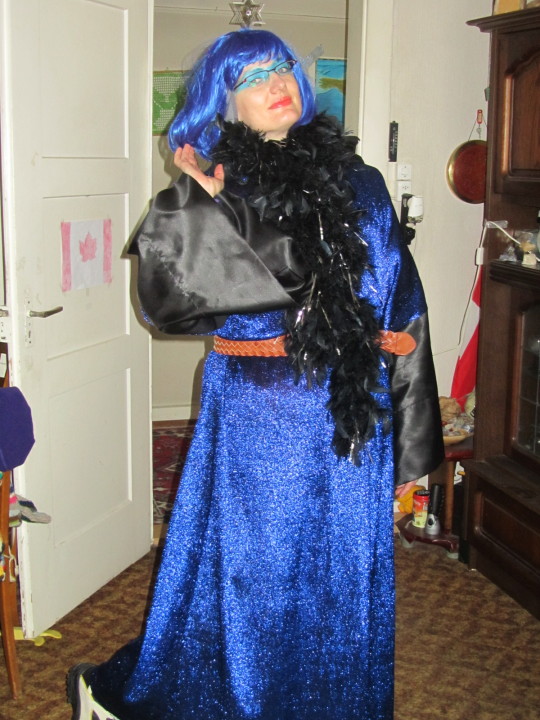


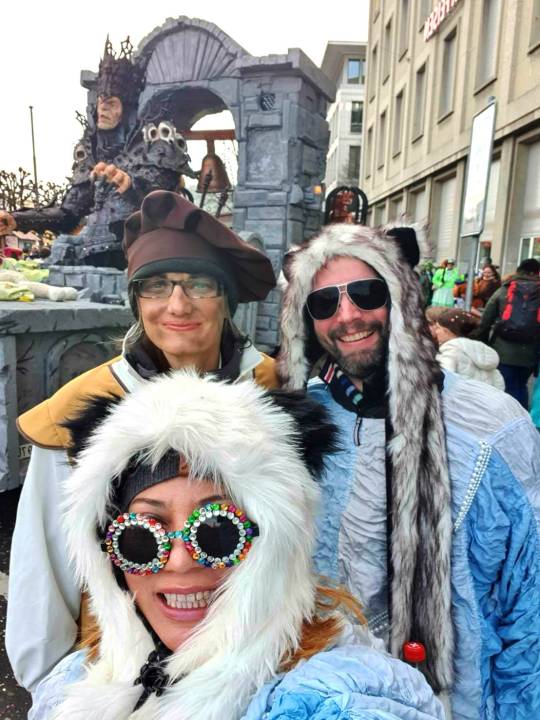
International Wig Day
Playing dress up has been a favorite pastime for children for ages. Why do we let go of the fun? International Wig Day has created a day where anyone and everyone can play along and wear a wig to change their appearance. You can choose to be silly, or serious. You can get a wig that will let you try out that haircut you’ve been thinking about, but aren’t sure if you are brave enough to do it. Now you have a reason and way to try it on for size!
History of Wig Day Temashop, a costume store in Denmark, created this holiday to bring a little fun to life. Everyone can get into a rut with the steady pull and push of a busy life. They encourage people to get their co-workers and friends involved and really make the event something special! Men and women, girls and boys are all invited to join!
People often think that wigs are just for people who have lost their hair due to medical treatment or natural hair loss. It just isn’t the case. Many celebrities have been open in admitting that they use wigs as an accessory to their fashion choices. Actors have used wigs throughout history as part of their costumes. Some people say that certain wigs help them to adopt different attitudes.
How to Celebrate International Wig Day The best part of celebrating International Wig Day is to get your friends involved! Get your work or school to go along as well and let the fun of the event last all day. There are many fun options for wigs at party and costume shops. If you need some inspiration, internationalwigday.org has a list of online shops you can check out.
Another way to celebrate is to pick your wig and dress on up to go out with your friends. Again, silly or serious is up to you. Just enjoy your friends and the atmosphere of where you choose to go. That is what the day is all about, reminding as many people as possible to just slow down and enjoy life.
Need more inspiration? Talk to your stylist and see what they are doing to celebrate! They may even be able to direct you to a local destination where there will be a gathering of those who will be getting their Wig On! Not only will you have a great time with your friends, but might make some new ones as well!
Is there a local charity that could use some funds? You could use the day of fun in the workplace to help. Perhaps a donation will allow each person to participate in International Wig Day and the proceeds could go to the charity! Fun and social awareness all in one. Everyone knows that the fun dress up days and events at work can lead to some hilarious moments! Don’t forget to record the fun and post your pictures on social media for all to see!
Source
#International Wig Day#InternationalWigDay#10 March#old pics#Schweiz#Lozärner Fasnacht#Lucerne Carnival#the best carnival in the world#Switzerland#Luzern#Lucerne#original photography#costume#indoors#wig#blue wig#world day#Reussbrücke#Reusssteg#River Reuss#old town#Chatzemusig#Guuggenmusig#cityscape#architecture#tourist attraction#landmark#outdoors
0 notes
Text

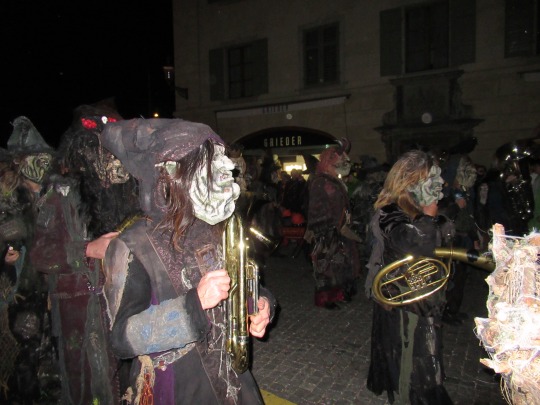
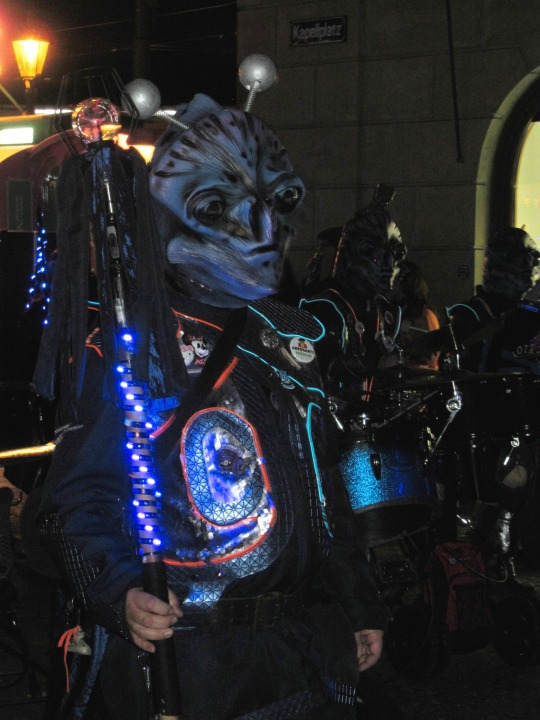
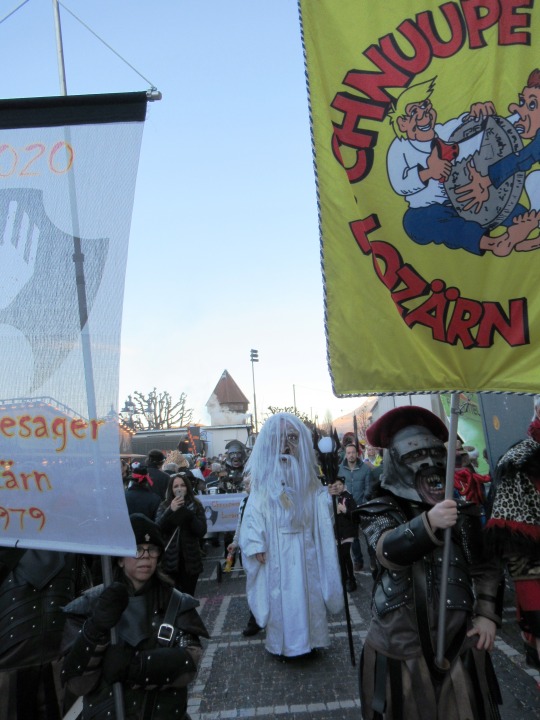
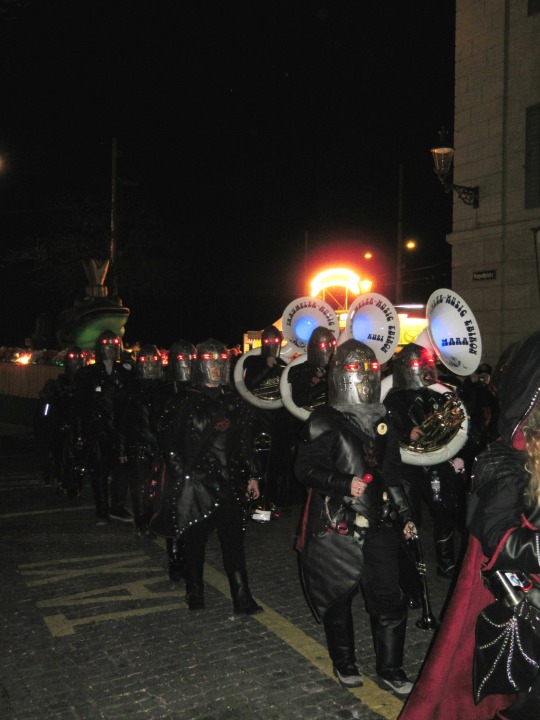
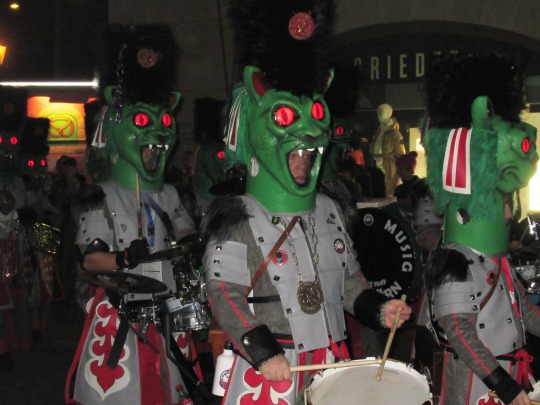
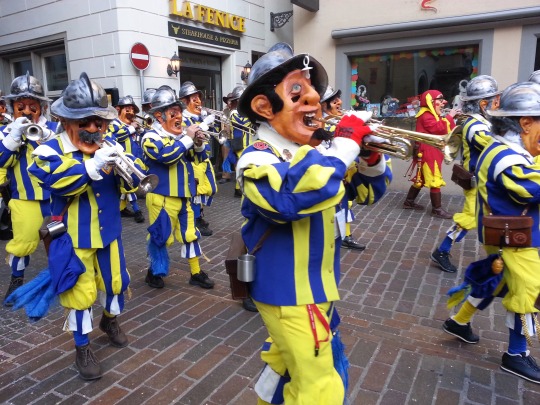
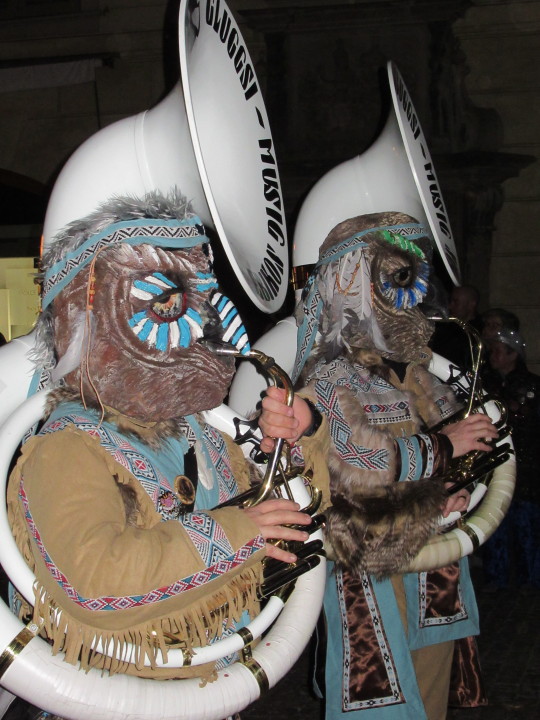
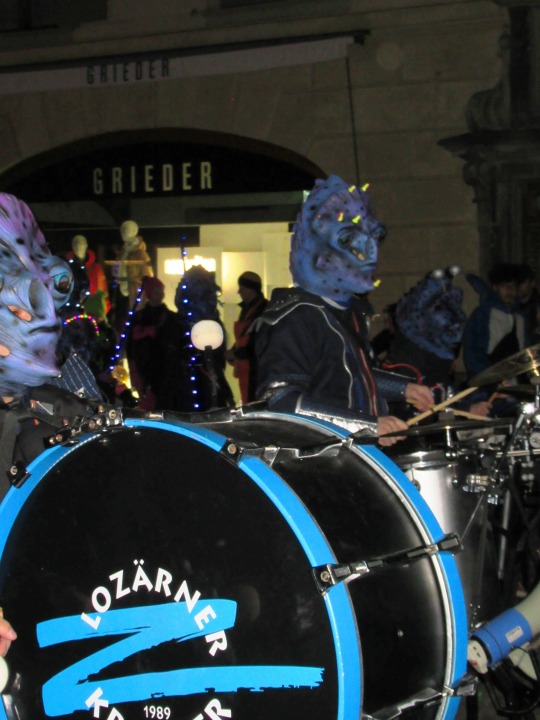



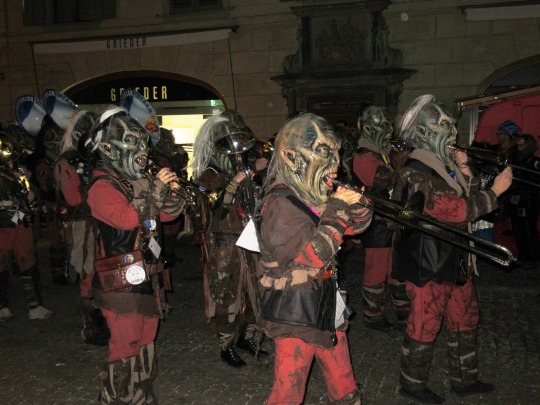
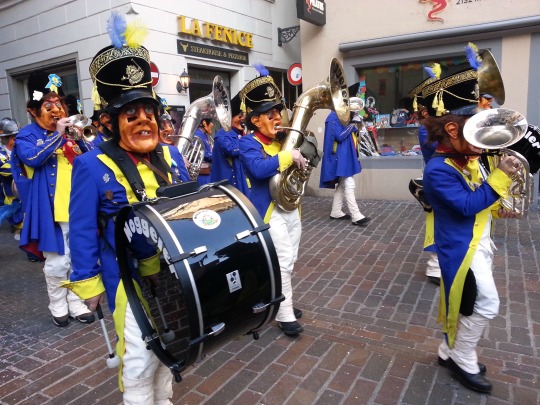




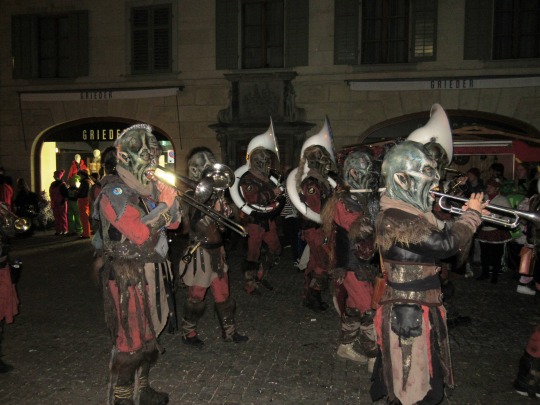
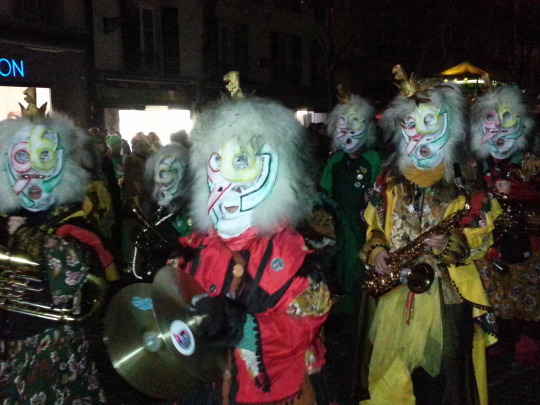
Marching Band Day
Meant as a day to build awareness around the ‘marching arts’, Marching Band Day is all about those upbeat, often cheerful bands which also happen to be moving around while playing.
Taking place on March 4th (‘march forth’ – get it?) this day is for all band geeks out there to celebrate one of the most musical of past-times.
Learn about Marching Band Day
I did the marching band all throughout junior high and high school. Music was one of my favorite things in school.
Marching Band Day is a day that has been designed to build awareness around the marching arts. It is all about those cheerful and upbeat bands, which happen to move around while they are playing music. You will often find that marching bands play an important role in a lot of festivals, parades, and outdoor events. Not only this, but they are traditional, having first appeared in the 1800s. Therefore, it is only right that we celebrate this incredible form of music and entertainment with Marching Band Day.
From the Broadway stage to football stadiums, the battlefield, and the training field, you will find marching bands in many different establishments. They delight spectators and performers with their amazing music, as well as keeping military units moving. They perform in grand arenas too, as well as auditoriums and smaller venues. This is one of the most versatile forms of music and entertainment.
Marching bands also play a critical role in terms of keeping the military upbeat. They have long been involved in the roots of the military, and they have evolved as time has gone on. Marching music can thrill the military during times of celebration or moments of upliftment. Marching music also helps to move people during somber memorials as well. They engage with people of all experience levels, abilities, ages, and personalities.
History of Marching Band Day
For a good few years now, there’s been a petition active in the USA to make March the 4th the official National Marching Band Day – but marching bands themselves have been around for donkey’s years. A marching band is always easy to spot even if you don’t hear them first, as they usually have a matching uniform – most commonly of a military-style – and often have members who don’t carry instruments but use flags and other props to add action to the music. These are called a colorguard and accompany most marching bands which you will see.
The first marching bands appeared in the 1800s by all accounts. They originated from groups of traveling musicians who would perform at festivals centuries ago, and as time went on they would become the foundation for military bands. And military bands are where marching bands directly evolved from. Marching bands in the USA are known mostly for performing at sports events – namely, American football matches. The oldest recorded marching band was the Notre Dame Marching Band, which was started up in 1845.
One of the most spectacular things about marching bands is the formation – back when they started up, the band might form the initials of the teams that were to play that day. But in modern times, the huge crowds that events like the Superbowl pulls together, call for something special – video games, film scenes, complex patterns – marching bands make their performance even more special by stepping out in a formation that makes up recognizable shapes when viewed from above.
How to celebrate Marching Band Day
Even if you don’t have a musical bone in your body, you can still enjoy Marching Band Day!
Get back to the roots of the marching band by going along to a sports match, or listening to some of the great, upbeat marching band music out there. There are also plenty of pretty amazing videos on Youtube to see of marching bands doing their thing, including some jaw-dropping formations at some of the big American football matches in the States.
You can be sure that a lot of marching bands will be putting on special performances for this day. It is worth doing a search online to see if any marching bands are performing in your area. There could even be a parade going on in honor of this day. If there is a Facebook group for your local community, you should be able to find information about any events happening here.
Another way to celebrate Marching Band Day is to learn more about marching bands. There are plenty of great information sources online and in libraries too. You will be able to learn more about the history of the marching band and how this musical trend started. You can also find out more about some of the most famous marching bands.
The Ohio State University Marching Band is a good place to start. They perform at events during the semester, including the Ohio State football games. This is one of only a few all-brass and percussion collegiate bands in the United States. There are plenty of other exciting bands as well. This includes Blue Devils Drum and Bugle Corps, the USC Trojan Marching Band, Mucca Pazza, Environmental Encroachment, and the TriBattery Pops Tom Goodkind Conductor.
You should be able to find lots of information about these bands online, as well as videos of their performances on YouTube. You may even decide to celebrate Marching Band Day by learning one of the songs yourself!
Source
#PGL#Pilatusgeister Luzern#Noggeler#Lozärner Fasnacht#Lucerne Carnival#winter 2023#original photography#Chatzemusig#Leuechotzeler#Schweiz#Chnuupe Sager#Switzerland#Müsäli Musig#Näbelhüüler#Guuggemusig#like a marching band#similar enough#cityscape#2009#Umzug#Parade#Marching Band Day#4 March#MarchingBandDay#the best carnival in the world#tourist attraction
1 note
·
View note
Text
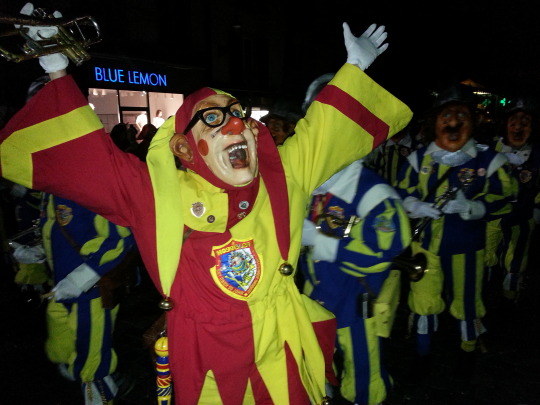

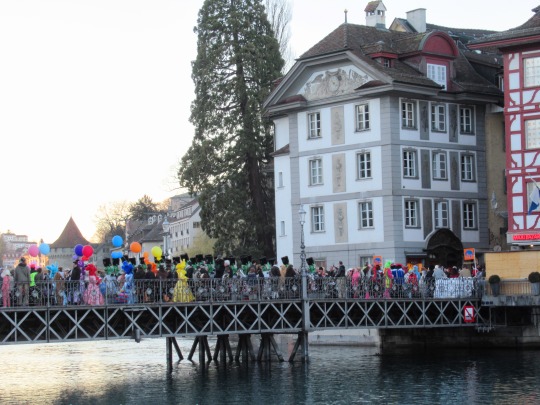
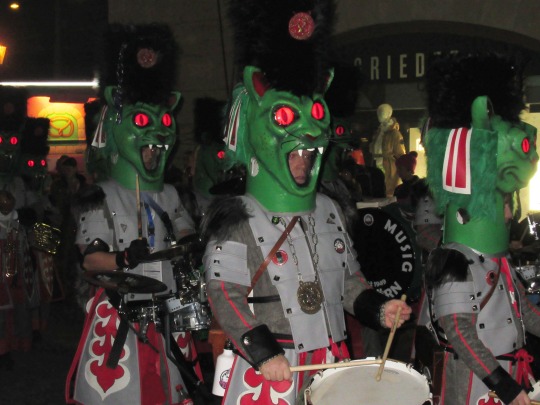

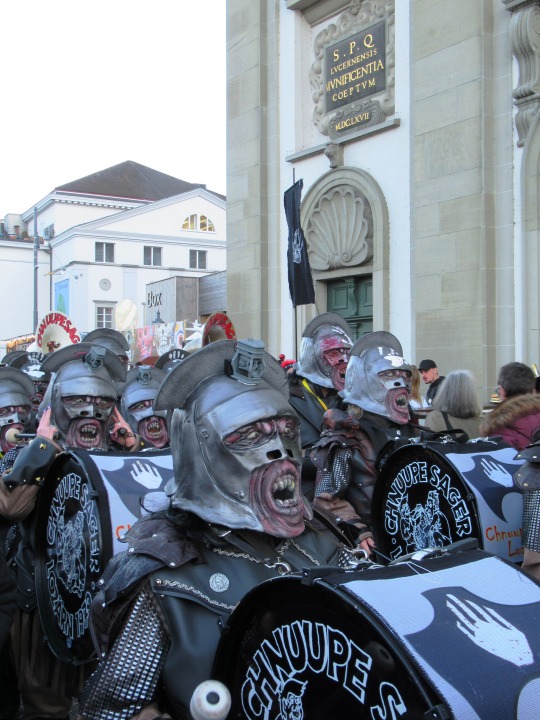



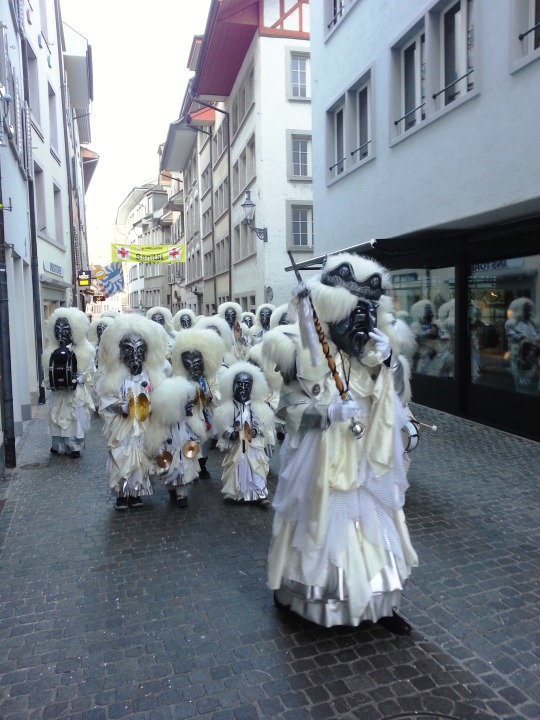
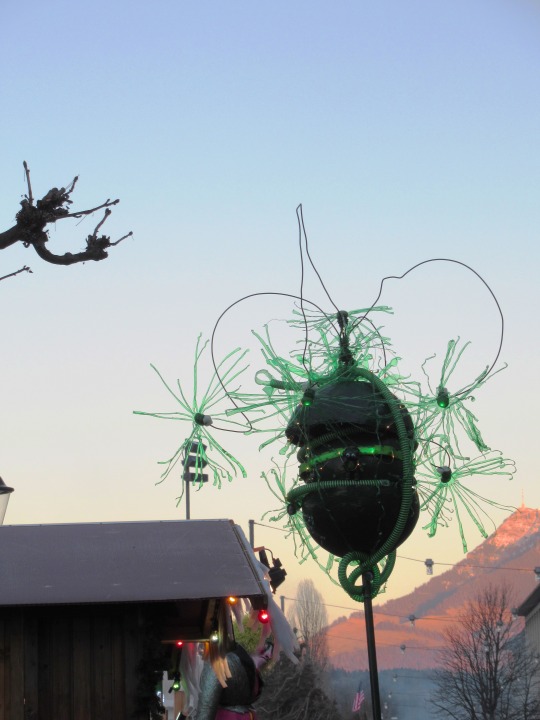


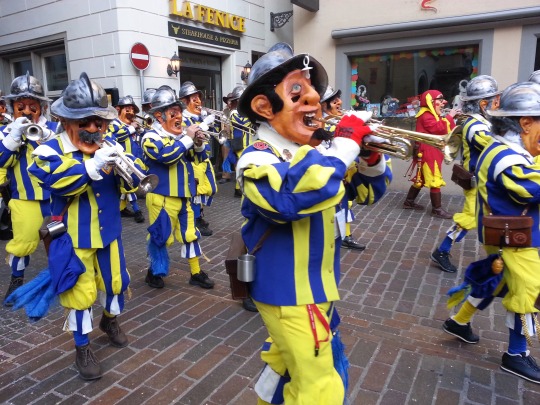
Fat Thursday/Schmutziger Donnerstag
Taking place on the last Thursday before Ash Wednesday, which begins Lent, Fat Thursday is a Christian feast that is primarily celebrated in European countries. It is similar to Fat Tuesday, which is celebrated the following week, but in many European countries, it is the more important holiday of the two. It also is associated with Carnival. As much fasting is done during Lent, Fat Thursday is a day for getting together and eating sweets and other foods that are eschewed during that season. Commonly eaten foods include pączki, berliners, and angel wings.
The holiday is given different names in various European countries, where distinct foods are associated with the day. The day appears to be most widely celebrated in Poland, where it is known as Tłusty Czwartek. Pastries and doughnuts from bakeries are eaten, especially pączki. The tradition of eating doughnuts on the day began in the seventeenth century. In parts of Germany, it is known as Weiberfastnacht. People wear costumes, and celebrations in the streets and in pubs begin at 11:11 a.m. It is known as the “women’s carnival” and there is a tradition of women “taking over” town halls. In some parts of Germany, the holiday is also known as Fetter Donnerstag.
Fat Thursday is known as Tsiknopempti in Greece, which roughly translates to “Thursday of the Smoke of Grilled Meat.” Being one of the last times that celebrants can eat meat before Lent, many Greeks grill meat such as souvlaki, and many cities set up grills in central squares and hold celebrations there. In Italy, the holiday is known as Giovedì Grasso, and in Sweden, it is known as Fettisdagen.
In some parts of Spain, it is known as Jueves Lardero. Bizcochos and a pastry called a mona are commonly eaten in the city of Albacete, and in the area of Aragon a special sausage is eaten. The holiday is called Dijous Gras in the region of Catalonia, and marked by eating bunyols and botifarra d'ou.
How to Observe
Regardless if you are planning on observing Lent in the following weeks, you can celebrate Fat Thursday today. It is best celebrated by indulging in large amounts of foods that aren’t very healthy, such as sweets, as well as by eating meat, which many abstain from during Lent. If you are in the United States, you could go to an ethnic bakery or grocery store to pick up some foods that are eaten on the day in European countries. Some foods you could enjoy today include pączki, berliners, angel wings, souvlaki, bizcochos, bunyols, and botifarra d'ou. If you are in a country such as Switzerland, Spain, Germany, or Poland, it shouldn’t be too hard to find celebrations to attend.
Source
#Näbelhüüler#Lozärner Fasnacht#the best carnival in the world#Luzern#Lucerne#Lucerne Carnival#original photography#Schweiz#Switzerland#Guuggenmusig#tourist attraction#architecture#cityscape#Schmudo#Schmutziger Donnerstag#Fat Thursday#last Thursday before Ash Wednesday#8 February 2024#Doop#Leuechotzeler#Schnipp Schnaps#Wasserturm#water tower#Chnuupe Sager#Rigi#Müsäli Musig#Reusssteg#Chatzemusig#too bad you can't hear pictures#Noggeler
1 note
·
View note
Text

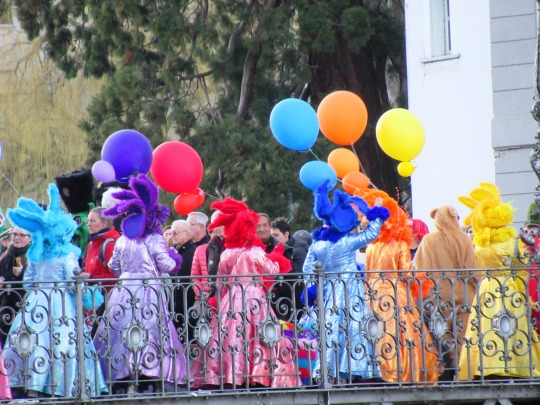




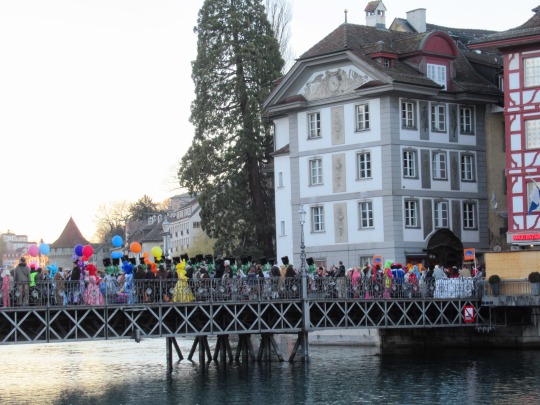

National Big Wig Day
National Big Wig Day is an annual celebration occurring on the last Friday of January. This year it falls on January 26. It’s a special day that allows anyone not only a place for special recognition as a “big wig” but also for them to showcase their fun sides by donning their favorite silly wigs. Just as people show off those wigs, the goal is to encourage as many people as possible to donate to the activities of the American Cancer Society, to fight the scourge of cancer. People are encouraged to donate as little as $1 for this cause.
History of National Big Wig Day
Today, wearing wigs has become a lifestyle and an important part of fashion in society, but its history dates back many centuries ago. The first record of the use of a wig is in ancient Egypt, where the people protected their shaved heads from the intensity of sunlight and lice by adorning them with wigs. This record is depicted in Egyptian ancient paintings and sculptures.
From the 16th to 18th century, the Europeans started using wigs as a way to combat the proliferation of baldness that ravaged them as a result of a syphilis epidemic. However, after the approval of King Louis XIV, the use of wigs became more pronounced as a form of fashion among the Europeans. Going forward, in the 20th-century wigs became more popular and accepted among women and various kinds and forms of wigs were introduced.
The National Big Wig Day was invented by Patty Sharkey on January 2, 2016. After a melancholic post-holiday, she posted a ‘wigged out’ selfie of herself wearing a raspberry and chocolate-colored curly wig on Facebook and captioned it “Happy National Wig Day.” Surprisingly, the reception was amazing and the responses from the people all around the United States were encouraging. Patty Sharkey thought of a way to share this silliness while creating a charity forum for a cause and came up with the popular National Big Wig Day every last Friday in January.
The major highlight of the National Big Wig Day is to get many people to give at least a dollar. The goal of the fundraising is to see that one million people give one dollar each to the American Cancer Society Look Good/Feel Better division. As a tradition, Sharkey nominates a Big Wig who inspires affection in all of us. And as we celebrate today, know that you have a Big Wig in you.
National Big Wig Day timeline
3000 B.C. Ancient Egyptians Use Wigs
The first use of wigs in history is found among the Ancient Egyptians who use wigs as a means of covering their scalp from the intensity of sunlight.
1600s Use of Wigs By Europeans
Europeans begin to wear wigs to cover baldness resulting from the syphilis epidemic.
1900s Wig As Costumes
Wigs become popular among women and are used as a costume for celebrity glamor.
2016 The Day is Established
National Big Wig Day is established by Patty Sharkey.
National Big Wig Day FAQs
What makes National Big Wig Day special?
The National Big Wig Day is special because, aside from the fun and the glamor of donning the wigs, the motive behind the celebration is the fact that we all can display the humanity, affection, and compassion in us to those who are ailing, by donating even as little as $1 to the American Cancer Society or any other organization that fights cancer.
Where is National Big Wig Day celebrated?
National Big Wig Day was started in 2016 in the United States by Patty Sharkey, but the celebration has spread farther beyond the shores of the U.S. to other countries where the goodwill behind the celebration is still much recognized.
When is National Big Wig Day?
The time and date of the National Big Wig Day celebration may differ from country to country, but the popular period usually observed in the United States is every last Friday of January.
National Big Wig Day Activities
Wear your favorite wig
Donate to Charity
Host a party
What better ways are there to celebrate National Big Wig Day than donning your finest silly wig and joining others to have fun? Amazingly, you can make your day more engaging, memorable, and fun by taking selfies of yourself adorned in your silly wig and sharing them online with the hashtag #BigWigDay on your social media accounts
The most amazing aspect of National Big Wig Day is the donation we make to assuage the pains of others. The goal is to form a joint and united front to fight cancer by donating as little as one dollar to the American Cancer Society.
Make this last Friday a memorable one with a special party where you have friends, family, and colleagues come over in their wigs. You can do some fundraising where everyone donates their token to combat cancer in our society.
5 Fun Facts About Big Wigs
Everyone wears wild wigs
One dollar for One Million
Periwig
It is used as a costume
Queen Elizabeth I
The famous insignia of this celebration is the wild wig, readily available at shopping malls all around.
The biggest goal of National Big Wig Day is to see one million people donate $1 each to show that even a single dollar from someone can make a huge impact.
The word 'wig' as it is known today is short for 'periwig,' a word that made its first appearance in William Shakespeare’s "The Two Gentlemen of Verona."
Contrary to the opinion that wigs are used by people who suffer natural hair loss, many actors and popular personalities have used wigs throughout history as a part of their costumes.
Queen Elizabeth I of England was rumored to have about 150 different wigs in her collection.
Why We Love National Big Wig Day
It brings out our awesomeness
Raising funds to help others
It unites us
National Big Wig Day brings out the awesomeness in us. We firmly believe that you are the biggest inspiration in your life; you’re the “big wig” of your life, and your essence and awesomeness are not tied to your clothing size, model of car, or job title, but the quality of your deeds. This day reminds us that we are fabulous, together.
National Big Wig Day is so important to us because we can donate funds to people who are suffering illnesses that endanger their lives and might put them in wig-wearing positions, like cancer. We encourage you to donate to this cause.
It is so amazing how both young and old from different backgrounds and religious inclinations come together on this day to celebrate National Big Wig Day and raise funds to support people battling cancer. This day unites us and encourages us to support each other irrespective of our color or creed.
Source
#Lozärner Fasnacht#the best carnival in the world#Lucerne Carnival#costume#original photography#blue wig#winter#National Big Wig Day#Luzern#Lucerne#Schweiz#Switzerland#26 January 2024#last Friday in January#indoors#Reussbrücke#Reusssteg#River Reuss#old town#architecture#tourist attraction#landmark#Chatzemusig#Guuggenmusig#balloon
0 notes
Text

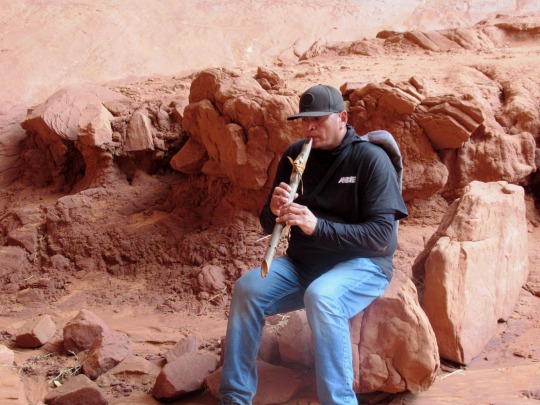


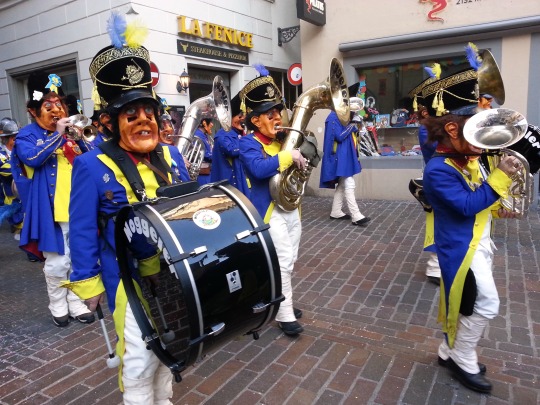






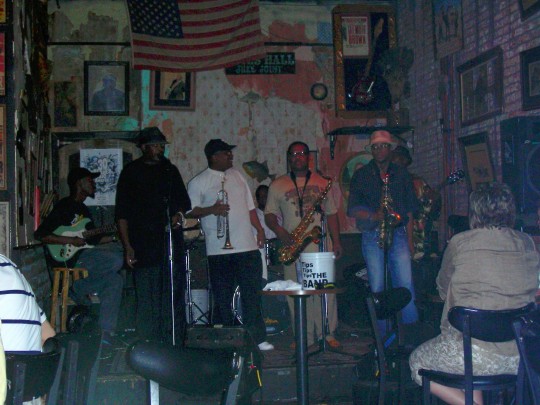

International Music Day
By this one common thread that has the power to bring all humans, societies and cultures together, International Music Day seeks to gather, connect and promote musicians around the world.
Music is the light of life for many people. It inspires, encourages and brings people together. Studies even show that music is good for the health and the brain, providing positive physical, mental and emotional responses when people simply listen to music as well as when they play or sing it.
History of International Music Day
Music occurs within nature and humans have been recreating it probably since the beginning of time, as singing or humming seems to be a natural part of human development. Babies can even begin to sing as early as three months old!
While music has its unique attributes based on the culture and area of the world it comes from, it is a human activity that is exclusive to the human race and part of every culture in the world. Music unites human beings!
With that in mind, in 1949, the International Music Council was created as an associate organization of the United Nations Educational, Scientific and Cultural Organization (UNESCO). Its purpose was to express solidarity between human beings in the global music ecosystem. Connecting, encouraging and providing access for musicians around the world, this organization started International Music Day
Initiated in 1973 by the 15th General Assembly of the International Music Council, the first International Music Day was celebrated in 1975. The intention behind the day was to promote musical art among all sectors of society as well as applying the UNESCO ideas of peace and friendship among people.
Many methods of teaching music have been embraced all over the world, some of these specific to certain cultures. In Europe, the Americas, Asia, Africa and other places, children are often taught different versions of music in schools including singing and the playing of instruments such as recorders or percussion like drums and bells.
Whether a professional musician or novice, whether an opera singer or someone who really can’t carry a tune, International Music Day encourages people all over the globe to join in with five goals:
To allow children and adults to express themselves freely through music.
To give opportunities for children and adults to learn musical skills and languages.
To provide access to musical involvement for all.
To allow musical artists to develop and communicate through media and using proper facilities.
For musical artists to obtain recognition and fair remuneration for their work.
International Music Day Timeline
Paleolithic Period Musical instruments are used
Some of the oldest musical instruments, beginning with flutes, are believed to be from this period of time, millions of years ago.
1400 BC Music is first written down
The earliest form of musical notation is dated from this time, written in a cuneiform tablet.
1949 International Music Council (IMC) is formed
The world’s largest network of institutions and organizations working in the field of music is created.
1973 IMC General Assembly in Lausanne
At the 15th General Assembly of the International Music Council, a resolution is made to establish an International Music Day.
1975 International Music Day is founded
Started by the International Music Council, this day is initiated by Lord Yehudi Menuhin to encourage and promote music in society.
How to Celebrate International Music Day
International Music Day offers tons of opportunities to enjoy and celebrate everything to do with music and all of the amazing benefits it has to offer. Consider some of these ideas for getting involved:
Listen to Music
Whether it is classical music that promotes brain development or modern music that makes your body want to move and dance, International Music Day can be celebrated by putting on some tunes. Turn up the volume in the car or pop in those headphones at work and join in on all the fun and benefits that music has to offer.
Create some playlists on an online music platform, turn on the car radio, toss some vinyl on that vintage record player or grab some of those old CDs and get playing. Many different opportunities exist to enjoy listening to music in celebration of the day!
Learn About the Benefits of Music
Many people don’t realize that music is not only fun, it’s actually good for you. International Music Day is the perfect time to learn a little bit more about the benefits of music and how it improves the lives of billions of children and adults all over the world.
Music is good for the heart
Music can help with weight management
Music improves the mood
Music helps to ease pain
Studies have shown that the blood flows better when music is played. Playing music can lower the blood pressure, reduces the heart rate, decreases cortisol and promotes healthy substances in the blood.
Many people don’t know that playing soft music in the background while eating (and dimming the lights) can encourage people to slow down while they are eating which, ultimately, can lead to eating less food and promoting healthier eating habits.
Listening to happy music has been shown to make people (and also pets!) happy. Music can promote the release of good hormones into the bloodstream, such as serotonin and endorphins, which helps people to relax, relieve feelings of anxiety and depression, and promote positive emotions.
Research has proven that music can be used in healthcare situations, especially with geriatric people, to reduce the severity and intensity of pain, particularly in palliative care or intensive care patients.
Attend a Musical Event
This is the time to go out and listen to some live music! Whether related to International Music Day or just part of the cycle of music that happens all year round, attending a concert or other musical event in celebration of the day would be loads of fun!
Grab a seat at the local high school’s musical production. Pop into the local bar and listen to an open mic night. Attend an orchestra concert at the local chamber hall. Or get tickets to that rock star you’ve been dying to see! Music is all around so get ready to join in on it in whatever way possible.
Learn to Make Music
Been thinking about learning how to play the guitar or wondering if now is the time to take piano lessons again? International Music Day might be just the right motivation to get started! Join the rest of the world in learning to make music or improving those music skills by finding a teacher, taking a class or joining a local music collective. Even for those who are not prolific, learning and growing in making music brings joy and delight all over the world.
International Music Day FAQs
Is music good for you?
Yes! Research shows that music can provide health benefits like reducing blood pressure, minimizing anxiety and improving mental capacity.
Does music affect your mood?
Studies have shown that listening to upbeat music can make people feel happier and improve their mood.
Can music help you focus?
Certain types of music can increase brain power through motivation, increased focus and better memorization.
Did music come before language?
Some researchers believe that music came before language, using the study of infants as a basis.
Should music be taught in schools?
Many people agree that the benefits of teaching music in schools are myriad, including assisting in social skills, improving academic performance, and providing a creative outlet for development.
Source
#James Brown by John Savage#Guuggenmusig#Noggeler#B. B. King by Ed Dwight#Elvis Presley#Graceland#Country Music Hall of Fame and Museum#travel#USA#Brad Paisley#W.C. Handy by Leone Tommasi#Memphis#Nashville#Augusta#John Brown#Lozärner Fasnacht#Lucerne Carnival#Glenn Gould Gathering by Ruth Abernethy#bagpipe#Canada#Howard Shore#Lord of the RIngs#Maison Bourbon#New Orleans#International Music Day#1 October#InternationalMusicDay#Chnuupe Sager#original photography
1 note
·
View note
Photo
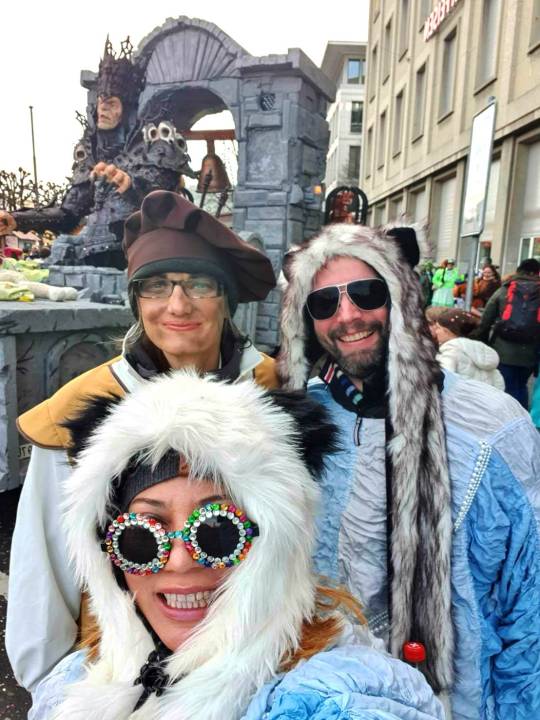









Brother’s Day
Get in touch with your brother or brothers and spend some quality time together, in-person or virtually. Plan a day out, have some beers, or go to a movie.
Oh brother! Have you got a boy sibling that drives you a bit crazy, but you love to bits anyway? Brother’s Day exists to celebrate that weird bond!
The bond between siblings is naturally very strong. Growing up together, getting into trouble, playing games together, the competitiveness between you. Perhaps you have just one brother, perhaps you have lots – today, it’s time to reflect on the ways in which your sibling has enriched your life.
Brothers might not be as inclined as sisters when it comes down to hugging, sending flowers, or even remember about celebrations altogether. How many birthdays have you remembered at the last minute and had to arrange an on-the-spot gift?
Of course, this does not mean that you value less the people around you. However, you can save yourself from embarrassment by just adding a quick tick to your calendar. This trick might even make you look amazing when you remember about Brother’s Day before your forgetful siblings!
History of Brother’s Day
Brother’s Day celebrates the family – specifically, brothers. Celebrated on the 24th of May, it’s a great day to let your brother know how much he means to you.
The bond between brothers is so strong and such a significant part of many people’s lives that it has inspired hundreds of books, films, paintings, poetry, and plays.
How many famous brothers can you think of? What about the Brother’s Grimm, famous for their stories? Or the Wright brothers, who pioneered the first airplanes?
Liam and Noel Gallagher of Oasis are brothers. Barry, Robin, and Maurice Gibb made up the Bee Gees. The Jackson 5 were all brothers – can you name any more?
There’s no doubt that sometimes brothers don’t get the fame and fortune that the above do – but this day is about making sure that your brother knows that you still think the world of him, even if you don’t always get along!
How to celebrate Brother’s Day
This is simple – it’s time to get in touch with your brother or brothers and spend some time with them!
Have a few brothers? Get together and go for a quick pint at the pub, or go catch a film together. Just the one brother? Give him a call and catch up, or pay each other a visit. Or maybe just irritate him a bit by texting him lots of GIFs, whichever you feel like.
If it’s been a long time since you have seen your brother, perhaps it’s time to get back in touch. This is the perfect day to do so. There could be lots of things that you’ve missed!
Make sure you use the hashtag #brothersday when you talk about the day on social media, and maybe you can share some of the stories you have about your brother growing up just to embarrass him!
Ideas for Brother’s Day celebrations
Is your spouse tired of you asking whether they can sort out a gift for your family? Here are some ideas to celebrate your male siblings in grand style (and without having to resort to the brilliant ideas of your spouse!)
Let’s be real: your brother might not appreciate a pink, heart-shaped card as much as your younger sisters. Instead, a gift card for his favorite videogames’ store might do the trick. Mind – do so at your own peril! Your sister-in-law might not be too happy about him spending his day playing Xbox. Yet, that will make you gain points!
Siblings’ trivia is always in the cards! If you have organized a family gathering, spice it up with some questions about your youth! You can find fun cheat sheets on the internet if you are not up for spending hours coming up with the questionnaire. Involve the parents for an even more entertaining evening!
Have you remembered about this event too late? Invite your brother out for dinner – or a pint! We all live such busy lives that we tend to forget to take a minute out of days to catch up with the people close to us.
If your sibling has forgotten Brother’s Day (and it will probably happen), a calendar or planner might be useful! It can help him keep his meetings and appointments in check while not forgetting to celebrate his brothers.
In the past years, you and your brothers might have moved into separate locations and meet up only during main family gatherings. However, this is the best occasion to strengthen that bond, find out how your brother is doing, and remember past events!
In case neither you or he can spare an evening (hectic lives!), opt for a phone call. Female siblings are better-known to love hours-long chat, while brothers might be content with a bare “what’s up.” However, secretly, they will appreciate a phone call and a chat!
If you are dealing with the most reserved of brothers, send him a bottle of wine or whiskey. Nothing better than a glass to enjoy by yourself while watching your favorite film after a hard day at work. And, they will be thinking of you – guaranteed!
This day is an unmissable occasion to celebrate somebody you consider a brother as well, even if you are not directly related. Moreover, if your sibling is no longer with you, you could use this event to remember the happy time you had spent together with your parents, friends, and other siblings. Whatever you get up to on Brother’s Day, make sure you take some time out for your family.
Source
#Great Britain#Switzerland#Lozärner Fasnacht#Lucerne Carnival#cityscape#the best carnival in the world#my sister-in-law#Sushi#English Bulldog#my brother's dog#original photography#Schweiz#bbq#Brother’s Day#24 May#Brother’sDay#indoors#outdoors
1 note
·
View note
Photo

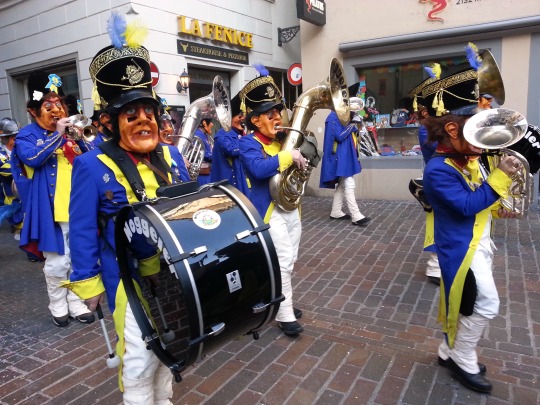


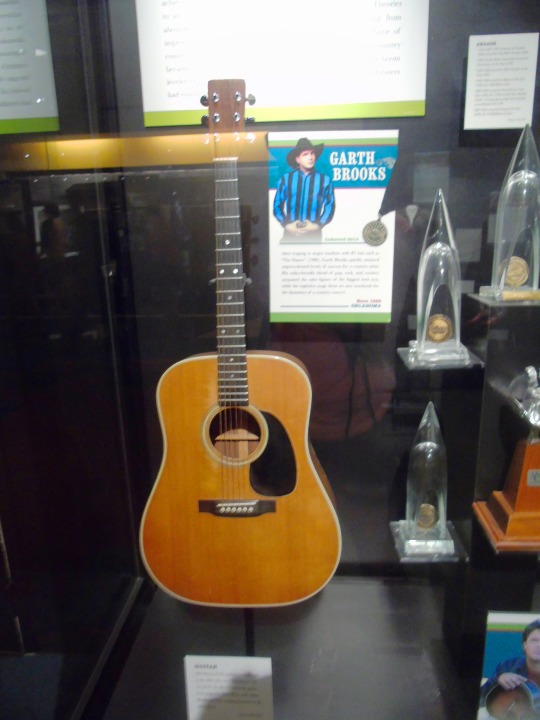

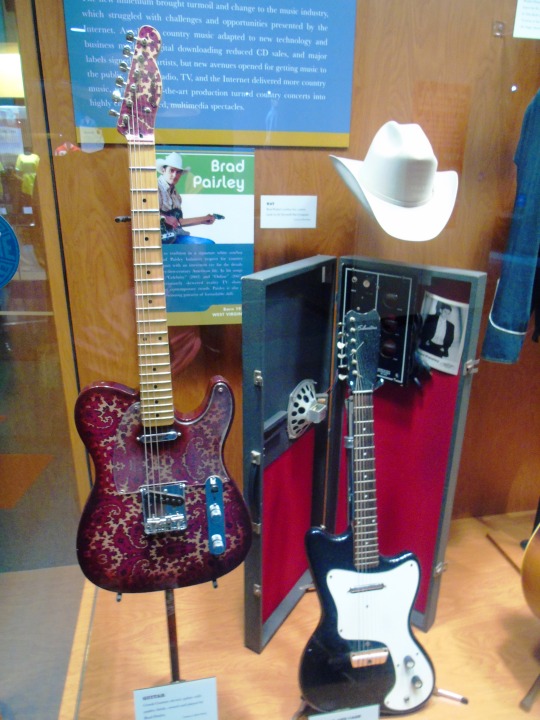



Buy A Musical Instrument Day
Visit your nearest music store this Buy A Musical Instrument Day; celebrated annually on May 22. This day is, you guessed it, here to motivate you to create beautiful melodies with a brand new instrument. Let this day be the push you needed to get yourself a lovely musical instrument.
History of Buy A Musical Instrument Day
Music has been a crucial part of human society throughout history, with musical instruments occupying a special space in culture. People who created such instruments were revered by society. It is believed that the first such instruments were used for religious ceremonies or while hunting and were made of bones, shells, and wood. Over time, these instruments began to be used to create melodies, and musical entertainment was born.
Archaeological studies and remains show that musical instruments have evolved over time. Each generation improved the designs and creations that came before it until we arrived at the instruments of today.
The oldest musical instrument in the world is also the only one associated with Neanderthal culture. However, some instruments found, dating back to the Upper Paleolithic age, are disputed as the oldest ones in the world. The Renaissance period is widely believed to be the best time in the history of musical instruments. It was responsible for giving shape to many of the modern classical instruments. In the past century, musical instruments have been introduced to electronics, and now we also have electronic instruments!
While we could not find the origin story of Buy A Musical Instrument Day, we did learn that this day was initially held on May 18 each year in honor of writer and composer Meredith Willson (1902–1984). Willson was famous for writing the music and lyrics for the musical “The Music Man”. Why this date was changed remains a mystery.
Buy A Musical Instrument Day timeline
30,000 to 37,000 years ago The Oldest-Known Musical Instruments are Created
Flutes made from bones of mammoths and swans are used in the Upper Paleolithic age — these are widely accepted as being some of the oldest musical instruments.
5th–15th Century Musical Instruments Go Global
North African instruments find their way to Europe, and instruments from Mesopotamia appear in maritime Southeast Asia.
1400 Musical Instrument Development Slows
There isn't much in the way of the development or innovation of musical instruments, and the Western World dominates any change in this landscape.
1750–1900 A Period of Revolution in Music
In the Classical and Romantic periods, composers and musicians start using musical instruments in new and revolutionary ways, changing how we hear music forever.
1995 The Only Musical Instrument Associated With Neanderthals
Slovenian archaeologist Ivan Turk discovers a 43,000-year-old bone carving named the Divje Babe Flute, which is likely the oldest musical instrument in the world, although this flute's status as a musical instrument is disputed.
20th Century The Rise Of Electronic Musical Instruments
Many new electronic musical instruments are developed like electric guitars, synthesizers, and the theremin.
Buy A Musical Instrument Day FAQs
Are musical instruments a good investment?
While many musical instruments have little resale value, they can mentally and physically benefit a person.
What is the cheapest musical instrument?
The most inexpensive musical instruments include the flute, clarinet, and trumpet, and the infrequently used clash cymbals and tambourine.
Which is World Music Day?
World Day of Music (also called Fête de la Musique) takes place on June 21 each year to honor all musicians. More than 120 countries celebrate this day by hosting free concerts in public places like parks, streets, and museums.
How To Celebrate Buy A Musical Instrument Day
Buy a musical instrument
Take music lessons
Make music
What’s in a name? Just an idea on how to celebrate this particular day, apparently. Add playing a musical instrument to your skills and buy the one instrument you have always wanted. Don’t want to buy an instrument? Simply make your own DIY one from common household materials. For instance, you can upturn a bucket to create a drum or fill the inside of an unused cardboard roll with beans to create a rainmaker.
Now that you've got your hands on a musical instrument, how about learning to play it? You can even take music lessons to familiarize yourself with different instruments and then pick which one is your favorite.
What do you do with your new skill of playing a musical instrument? You play it, of course! You can make it a group affair by inviting friends and family to play with you. When you start making terrific music, you can even set up impromptu concerts for local communities!
5 Fun Facts About Musical Instruments
There are six main instrument categories
The piano is the most played
Guess how many Americans play the piano?
Playing music helps children
A field of study on its history
There are six main musical instrument categories: percussion, woodwind, brass, strings, keyboard, and electronic.
The piano is the most widely played musical instrument across the world — this is followed by the guitar, and then by drums.
21 million Americans play the piano, more than all other musical instruments combined.
Research shows children who play musical instruments read at more advanced levels, exhibit larger vocabularies, and are good at teamwork.
Called organology, this academic field studies the history of musical instruments.
Why We Love Buy A Musical Instrument Day
Learn about music
Music creates a community
It encourages positive habits
The history of the world has always been intertwined with music. Each culture has its own importance and history of various musical instruments like drums played during a war, trumpets to announce something of importance, and more. Buy A Musical Instrument Day brings music and its history to the forefront of our minds, allowing us to reflect on the impact music has on the world.
Playing, learning, or even talking about it — music gives us a lot to share with like-minded people. How else can you explain the energy of the crowd at concerts? Bonding over this art form encourages people to learn and carry the music-making tradition on to future generations.
Studies correlate playing a musical instrument with a better quality of life. People perform better in school and work, experience less stress, and are generally more happy and productive. We certainly think learning to play musical instruments is a sight better than giving in to harmful habits or boredom. If you knew of a hobby that could enrich your life, wouldn’t you pick it up?
Source
#Noggeler#Guuggenmusig#Lozärner Fasnacht#Sydney#Luzern#Lucerne#Largest Ceilidh Fiddle in the World#New Orleans#Memphis#travel#USA#Switzerland#Canada#Toronto#Garth Brooks#Brad Paisley#vacation#Country Music Hall of Fame and Museum#Nashville#guitar#piano#bagpipe#cityscape#tourist attraction#landmark#culture#22 May#Buy A Musical Instrument Day#BuyAMusicalInstrumentDay
0 notes
Photo

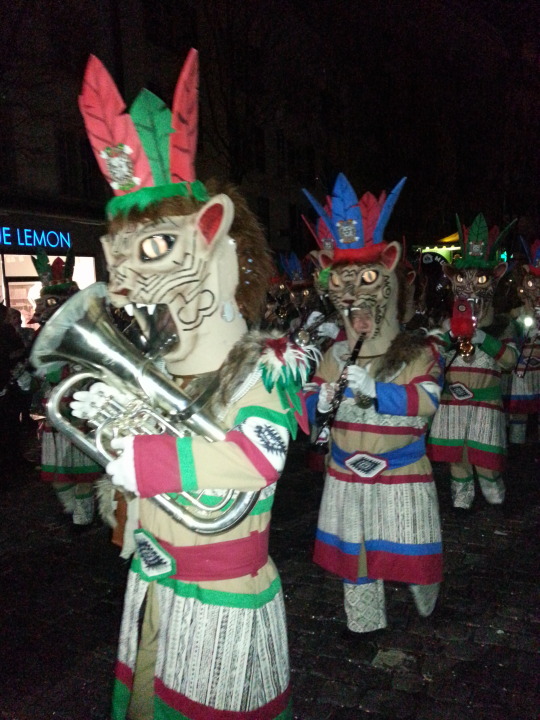
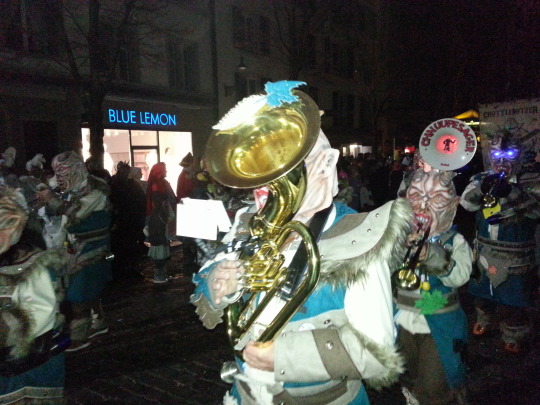
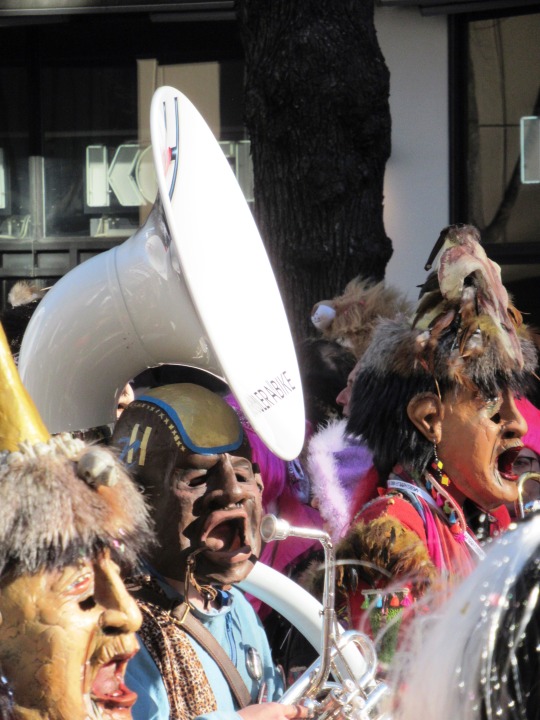


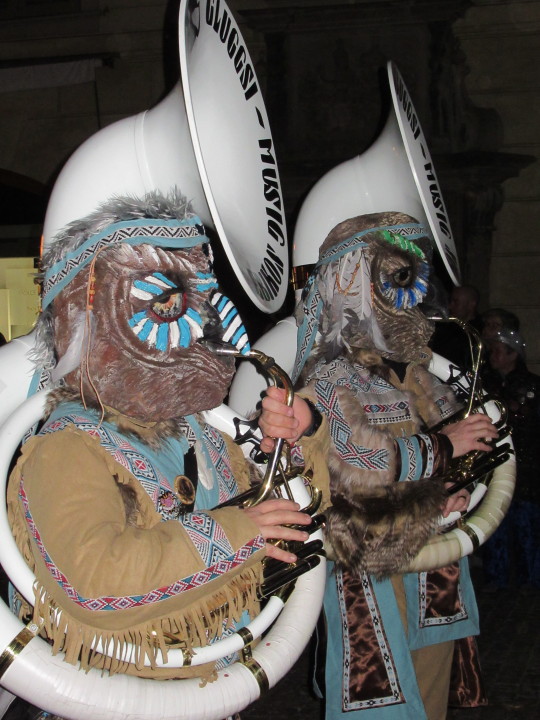

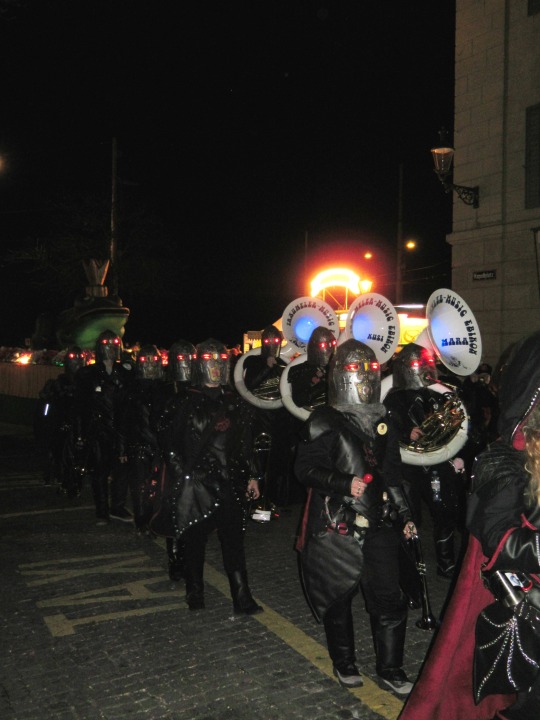

International Tuba Day
Underappreciated and often mocked, the tuba provides an essential role as bass in a wind or marching band, so dust off your tuba or go see a professional.
Do you all recall the least loved member of any marching band? That one sound that seemed to add so little to the overall musical experience that’s provided on the field?
No, we’re not talking about the drummers, though we can’t blame you for making that assumption. This is also marching band, not a rock band, so the bassist is ALSO the wrong answer, thanks for playing. We’re talking about the powerful “oompah” instrument that is the Tuba, and International Tuba Day celebrates the depth and diversity of sound that this beautiful brass wind is capable of producing.
So whether you know a Tuba Player, or are one today, International Tuba Day celebrates your underappreciated contribution to the arts.
History of International Tuba Day
These amazing performers really are underappreciated, and International Tuba Day gives recognition to them and all the struggles they face in the pursuit of their art. What struggles you say? Well, let’s start with the image that the world puts forth, the big heavy man with the big heavy instrument puffing away on it with cheeks like bellows.
That’s typically the first vision, and it often underscores the sheer lung capacity necessary for playing such a bombastic instrument. They’re also seen as having little to no personality, which is just utterly untrue! Playing such a lumbering instrument requires a significant amount of personality to make the performance bright and interesting!
Thankfully, we have a champion to come forth and help turn this image around. Joel Day first established this holiday in 1979 while part of the Lower Merion High School Band.
He and his fellow tuba player realized that their instruments simply failed to receive the respect and recognition they deserved. Little did he know that his efforts would result in a worldwide explosion of Tuba enthusiasm, with music being collected and performed that exalted the Tuba’s range and interest.
How to celebrate International Tuba Day
Well first off, if you’re a Tuba player, dust off that instrument and give the world a taste of what it’s been missing. The grand and powerful voice of the Tuba is amazing, and in the hands of a skilled player can definitely add a broad range of personality to any performance.
It’s deep, throaty, and not to be denied. You may be able to drown out the flutes and saxophones and violins, but the Tuba will pound right through the sound and make you feel it in your bones. International Tuba Day is your opportunity to remind the world what a Tuba player can do.
Source
#International Tuba Day#InternationalTubaDay#first Friday of May#5 May 2023#Lozärner Fasnacht#the best carnival in the world#Lucerne Carnival#old town#Tagwacht#Schmutziger Donnerstag#Güdismontag#original photography#tourist attraction#cityscape#Kapellplatz#architecture#landmark#Hirschenplatz#Umzug#Guuggenmusig#Guuggemusig#Chatzemusig#Gluggsi-Musig#Noggeler#Leuechotzeler#Näbelhüüler
0 notes